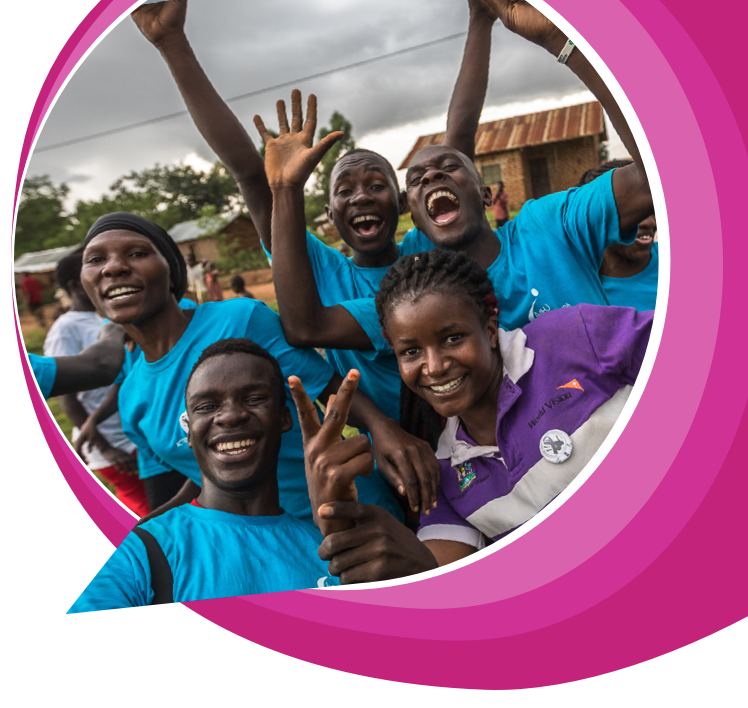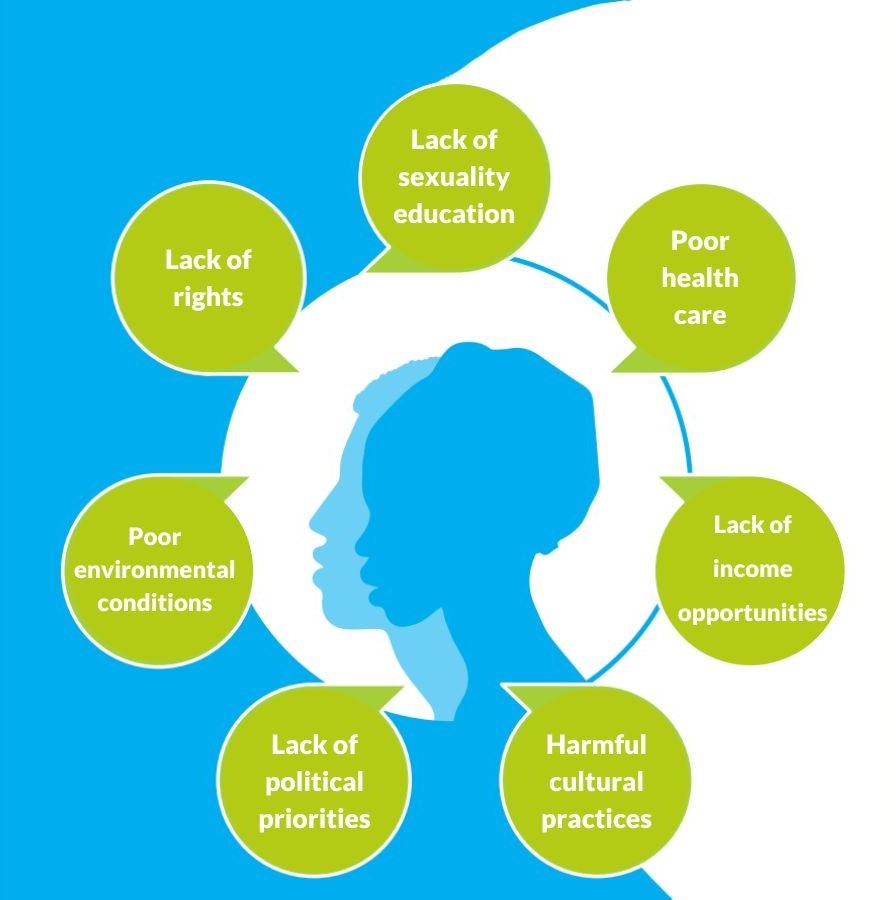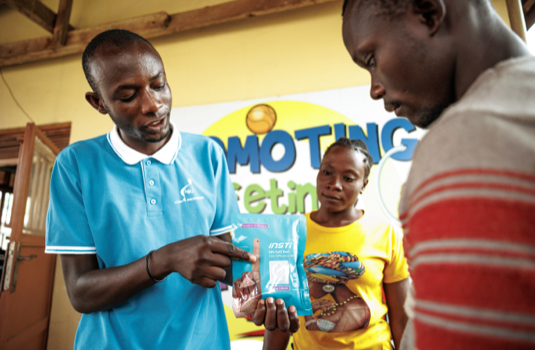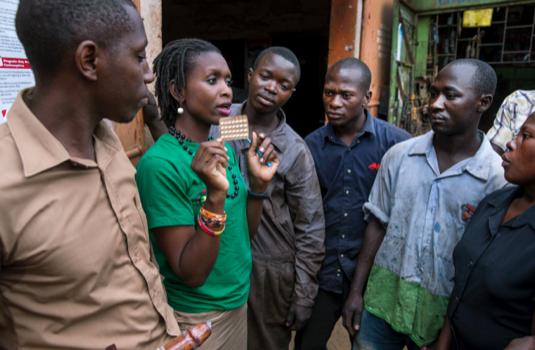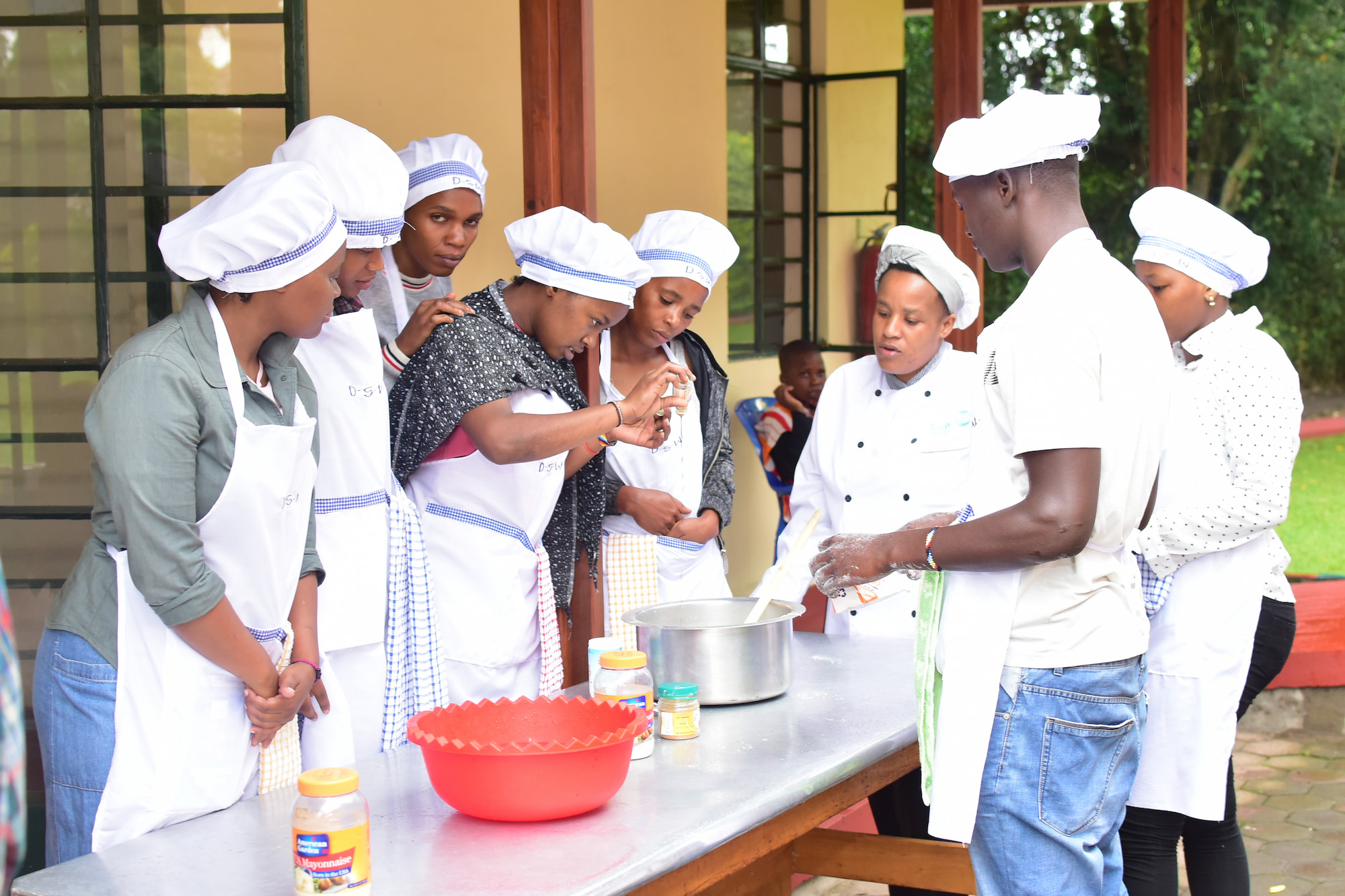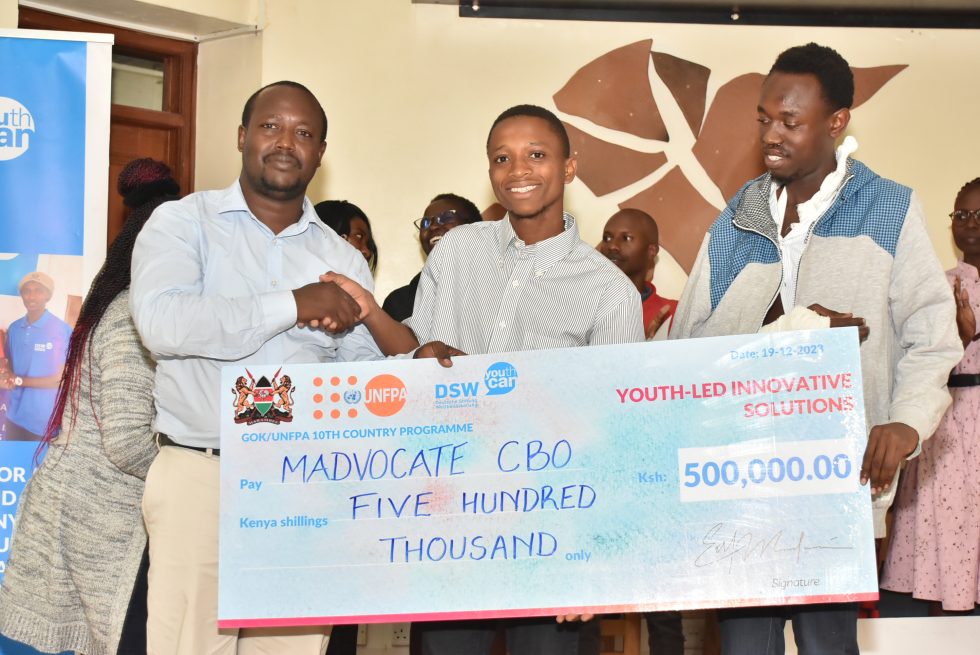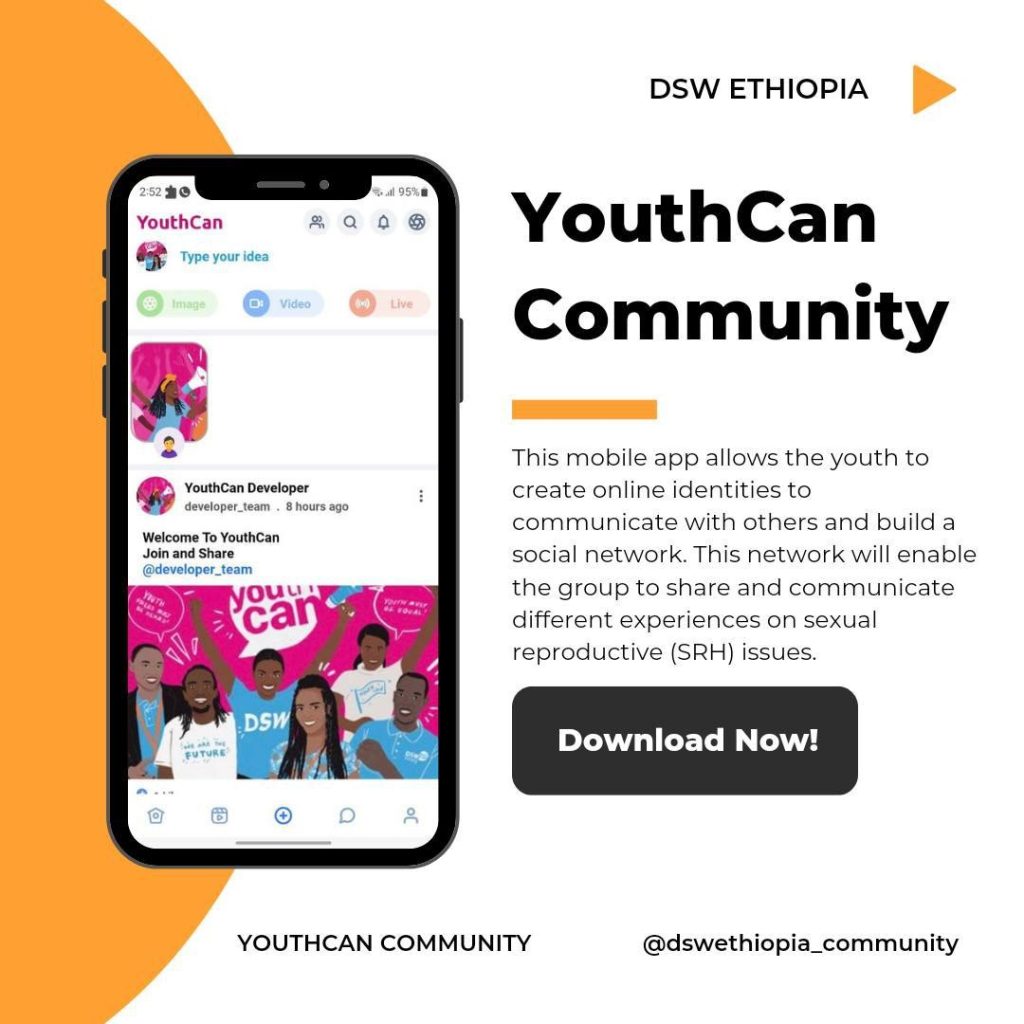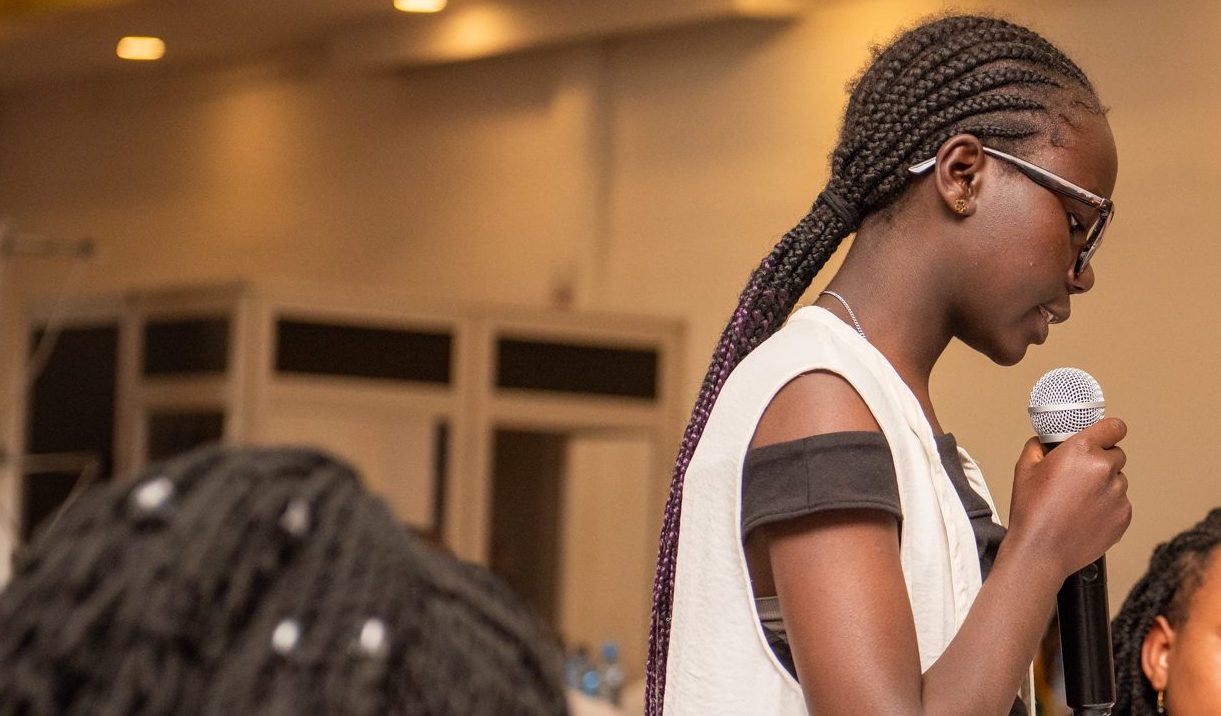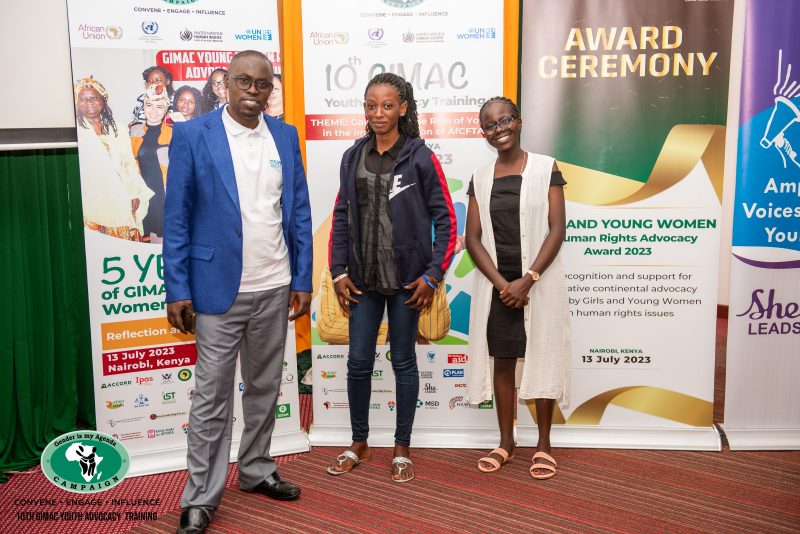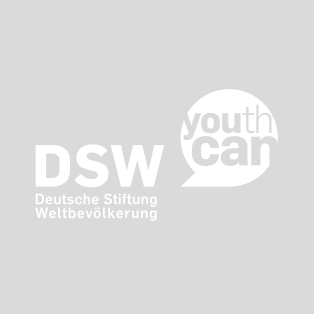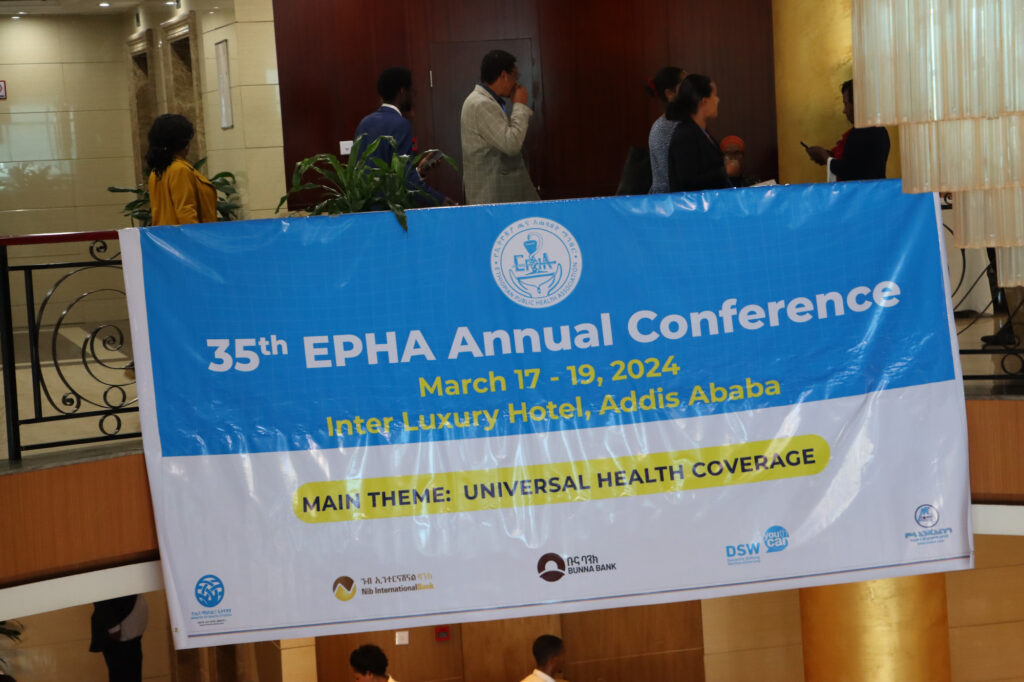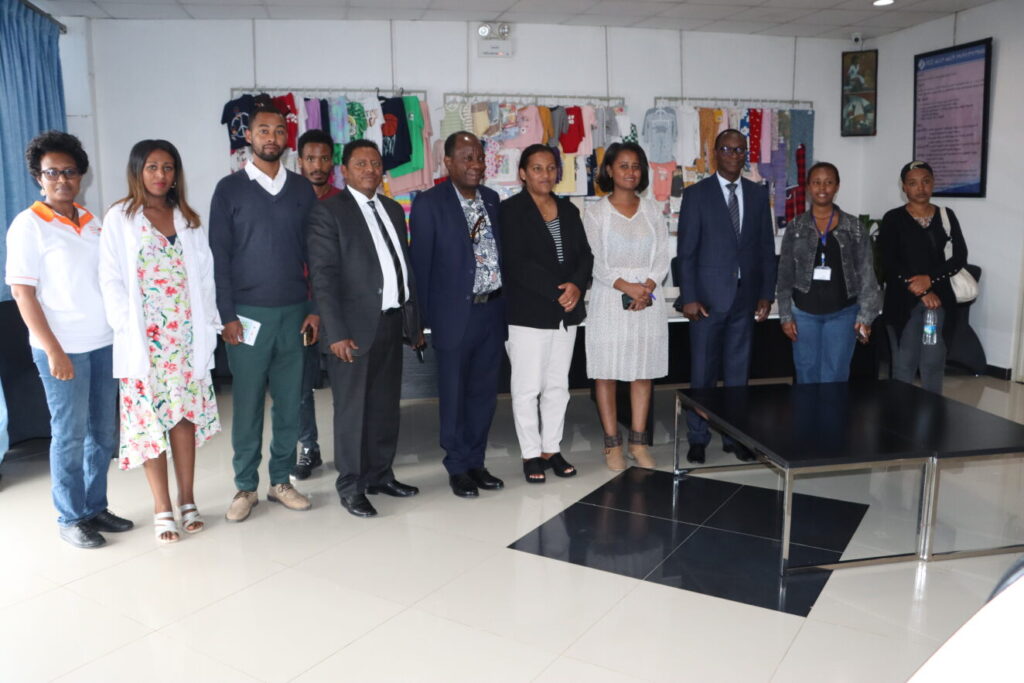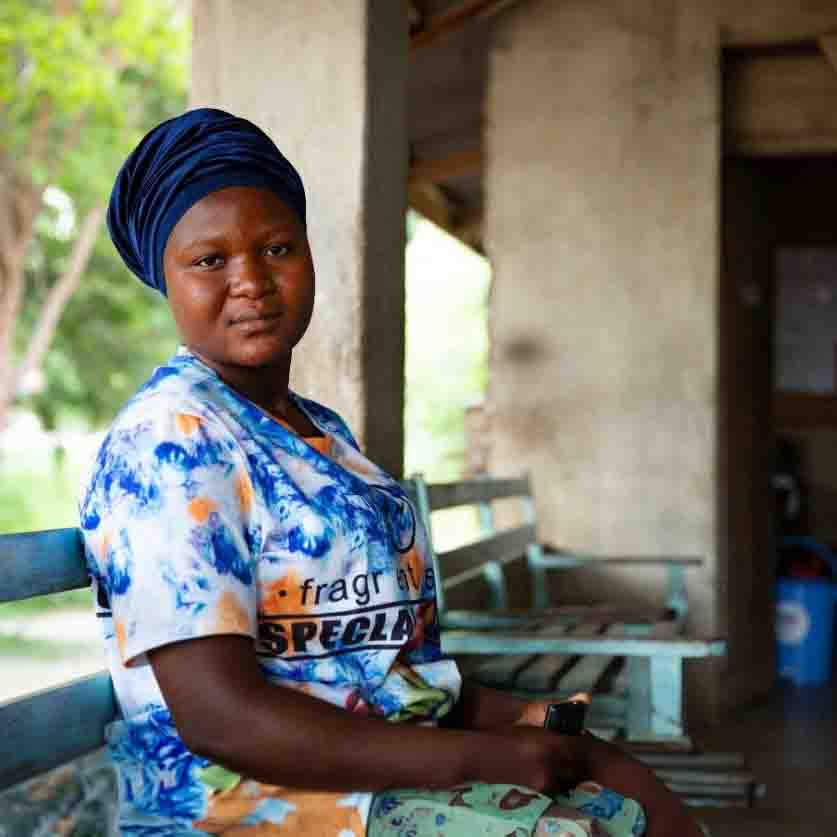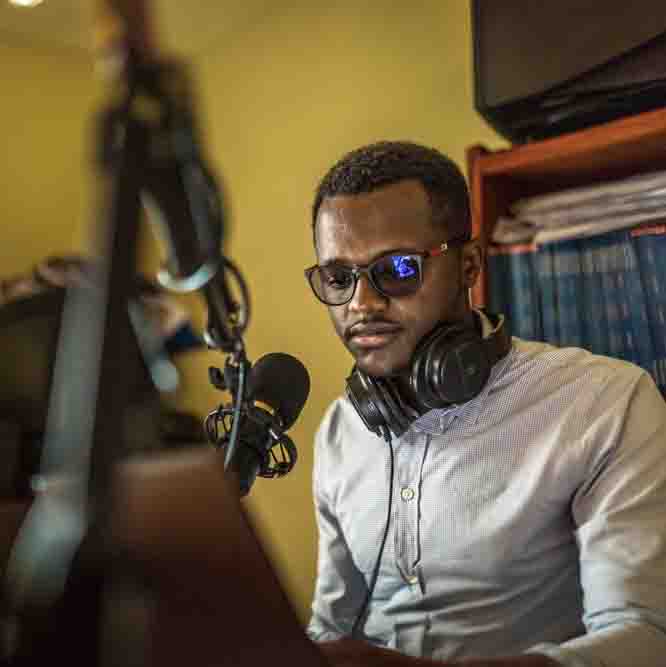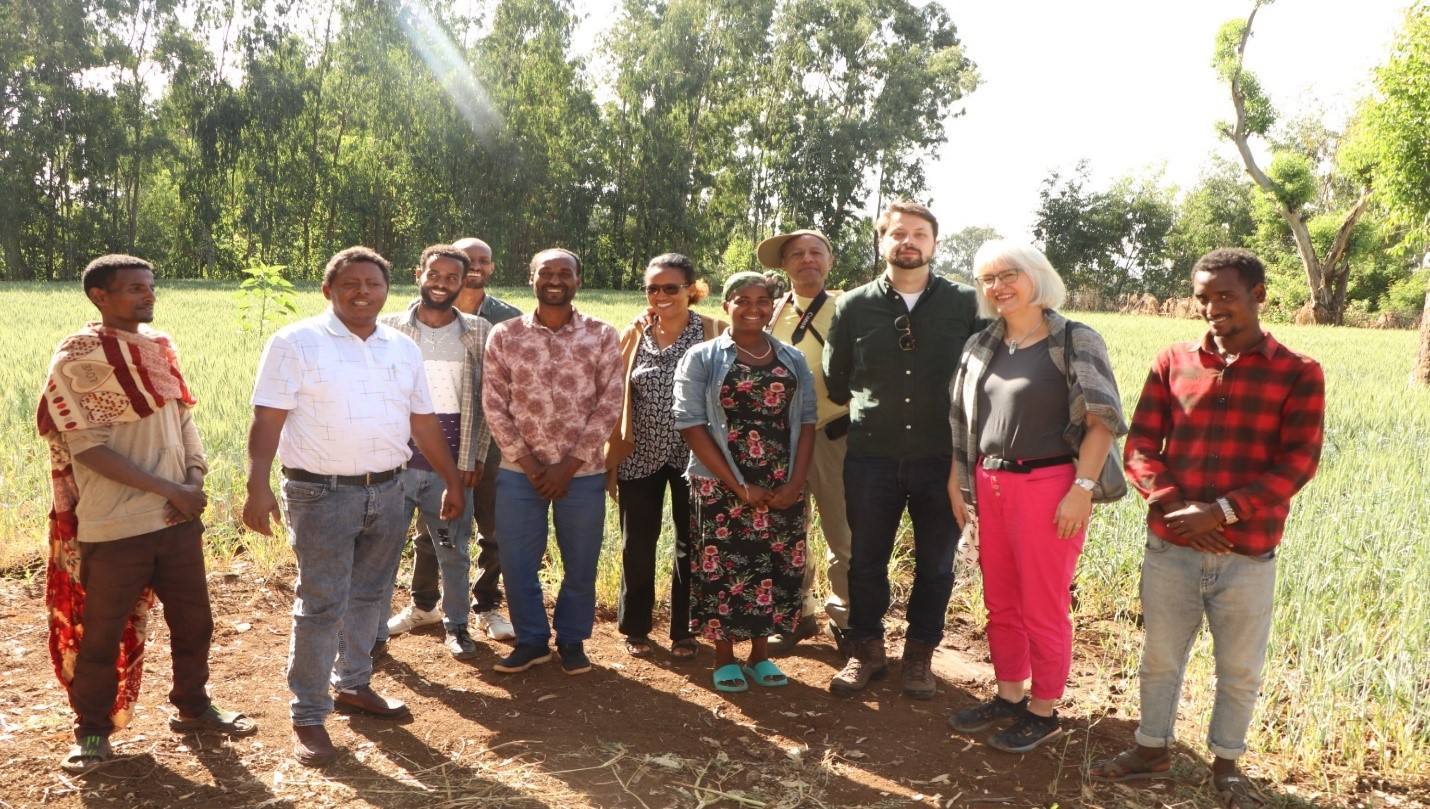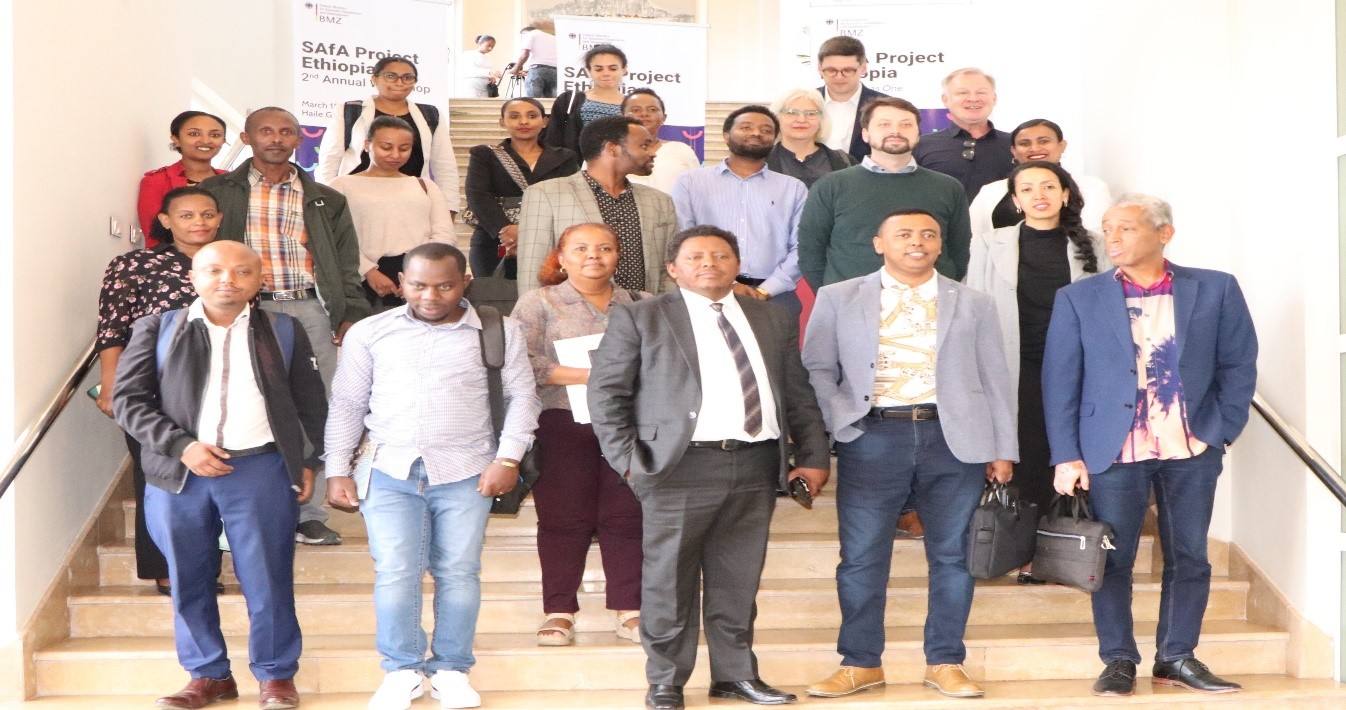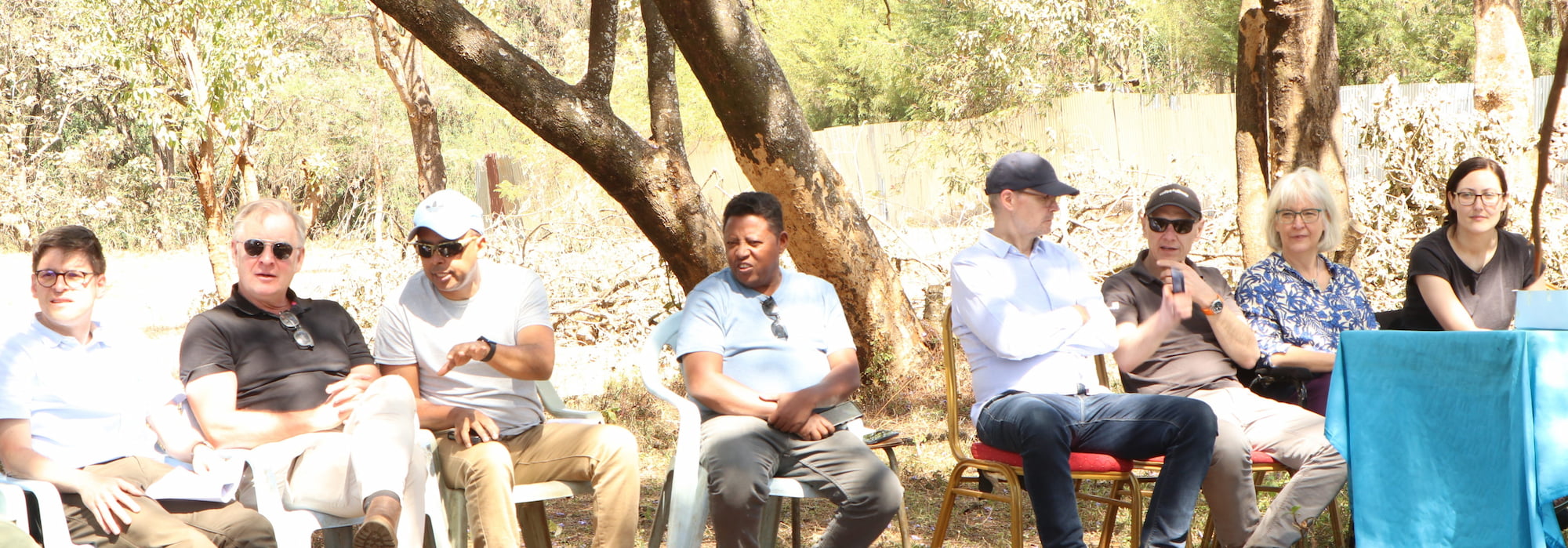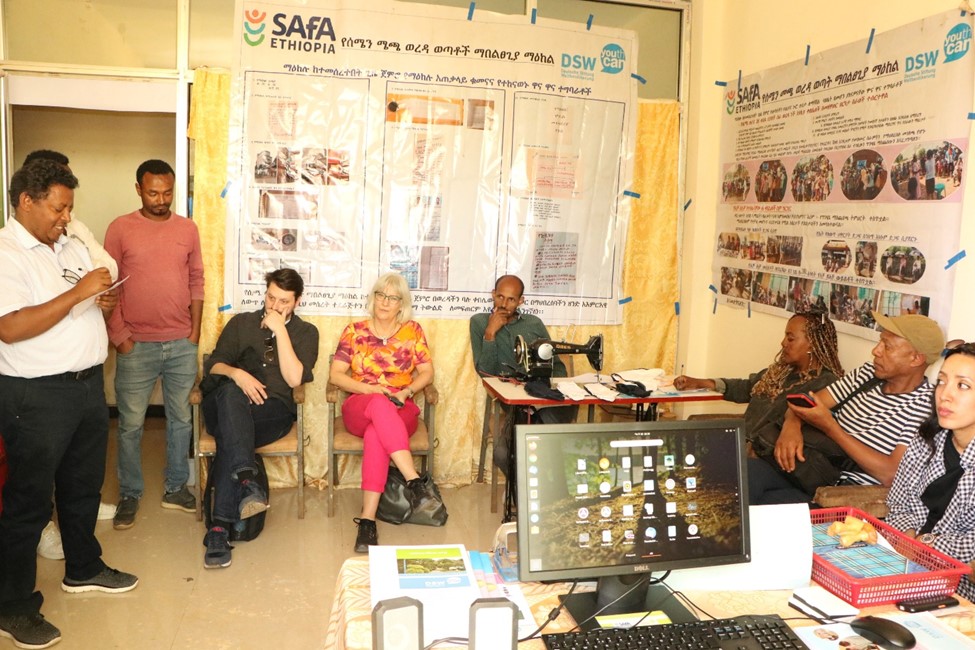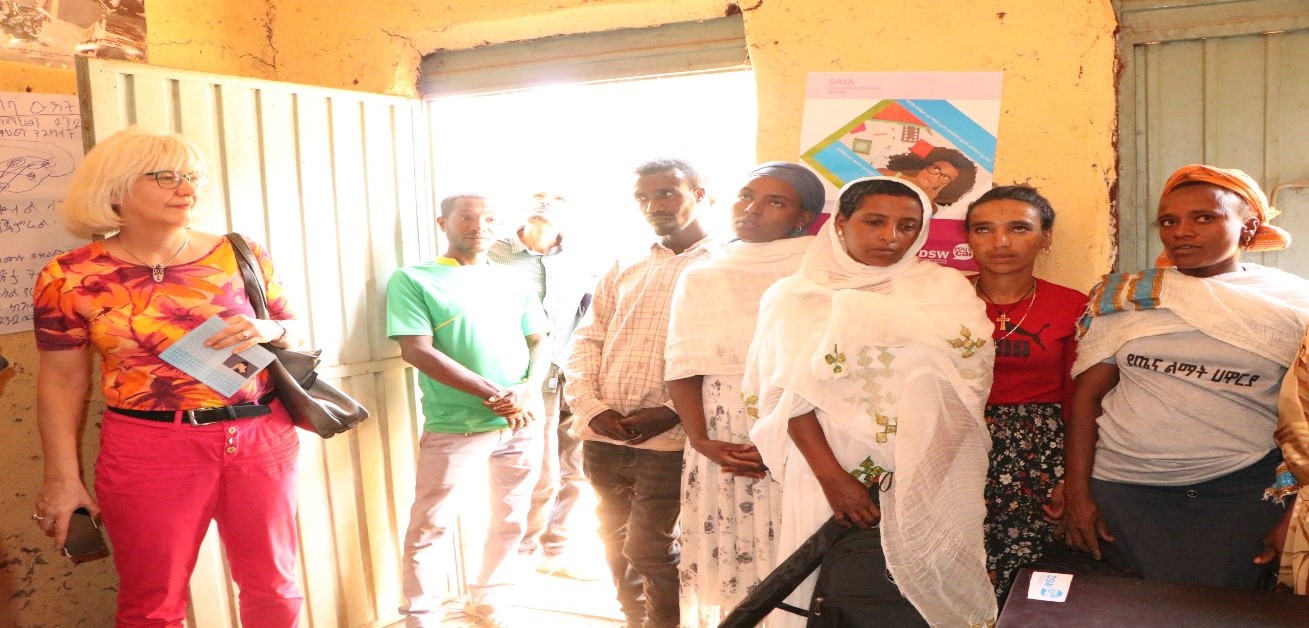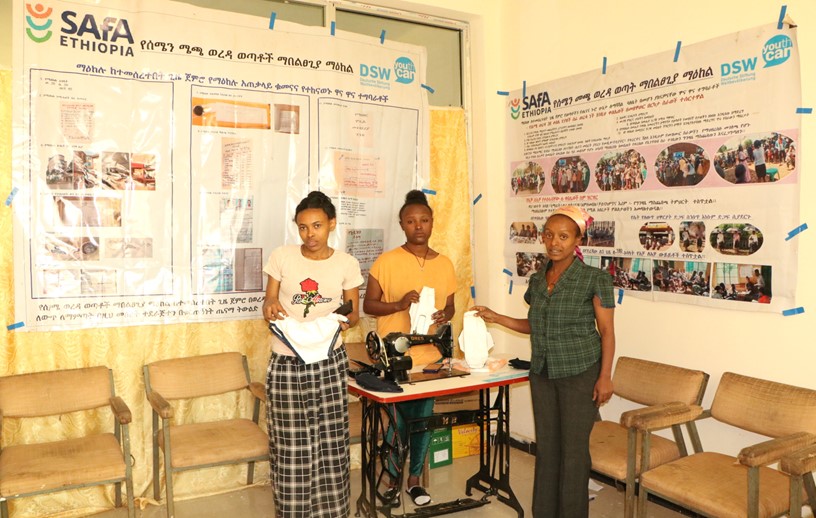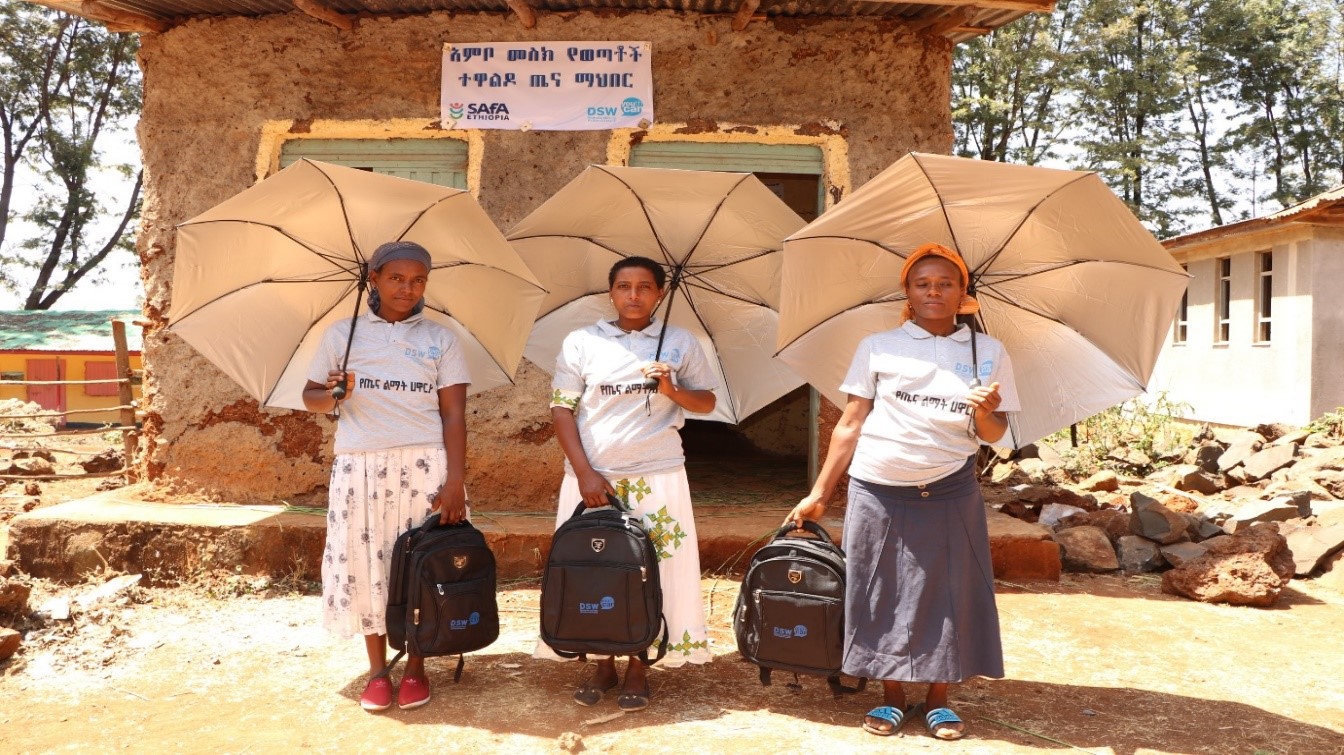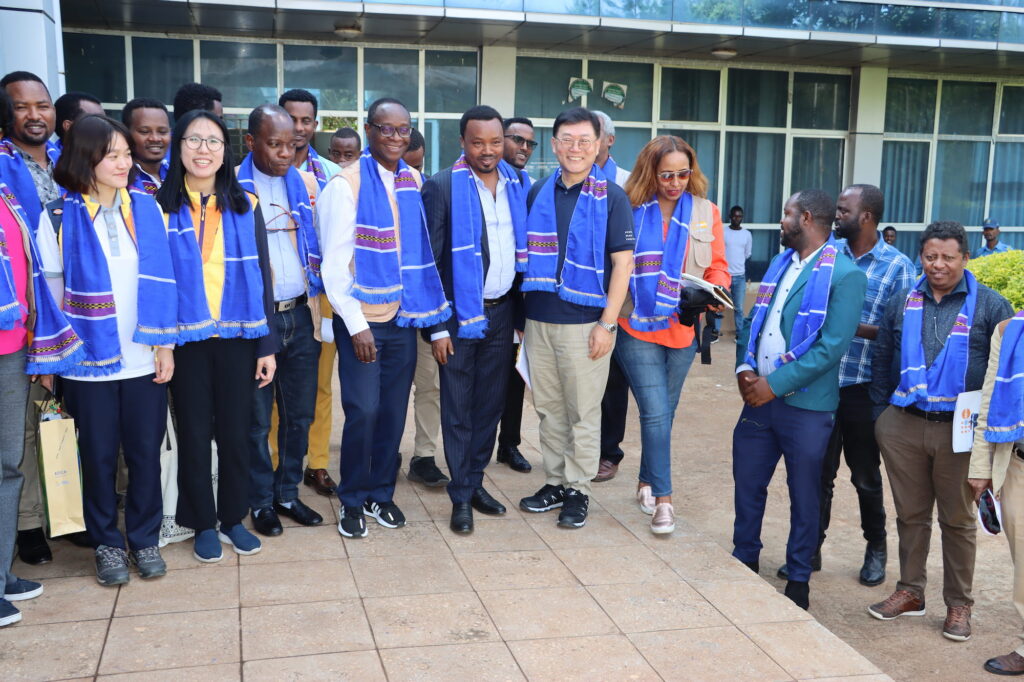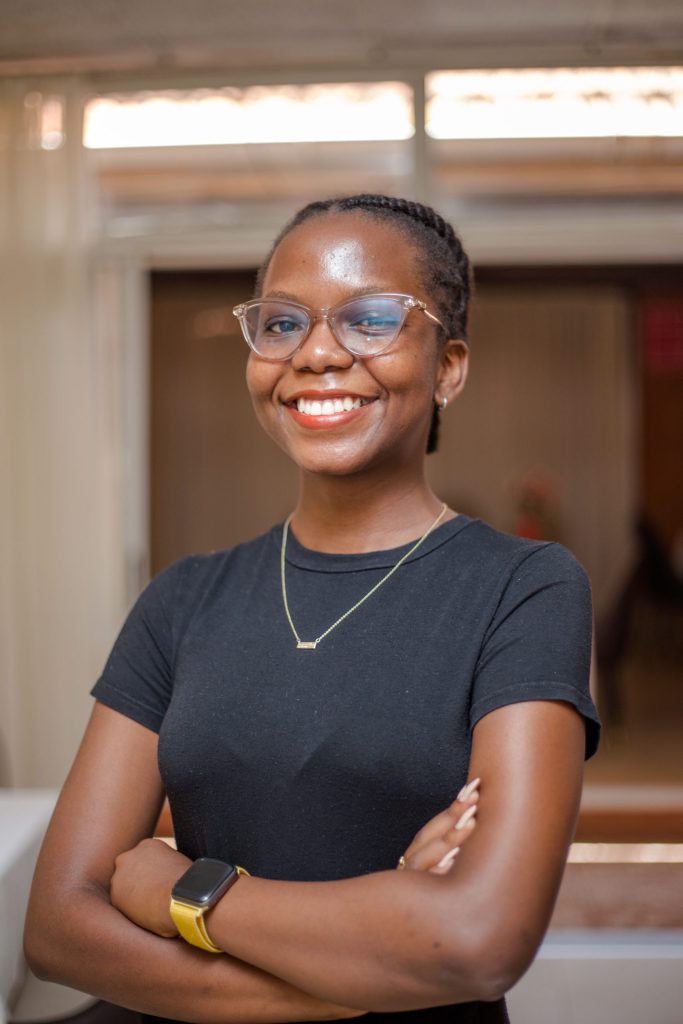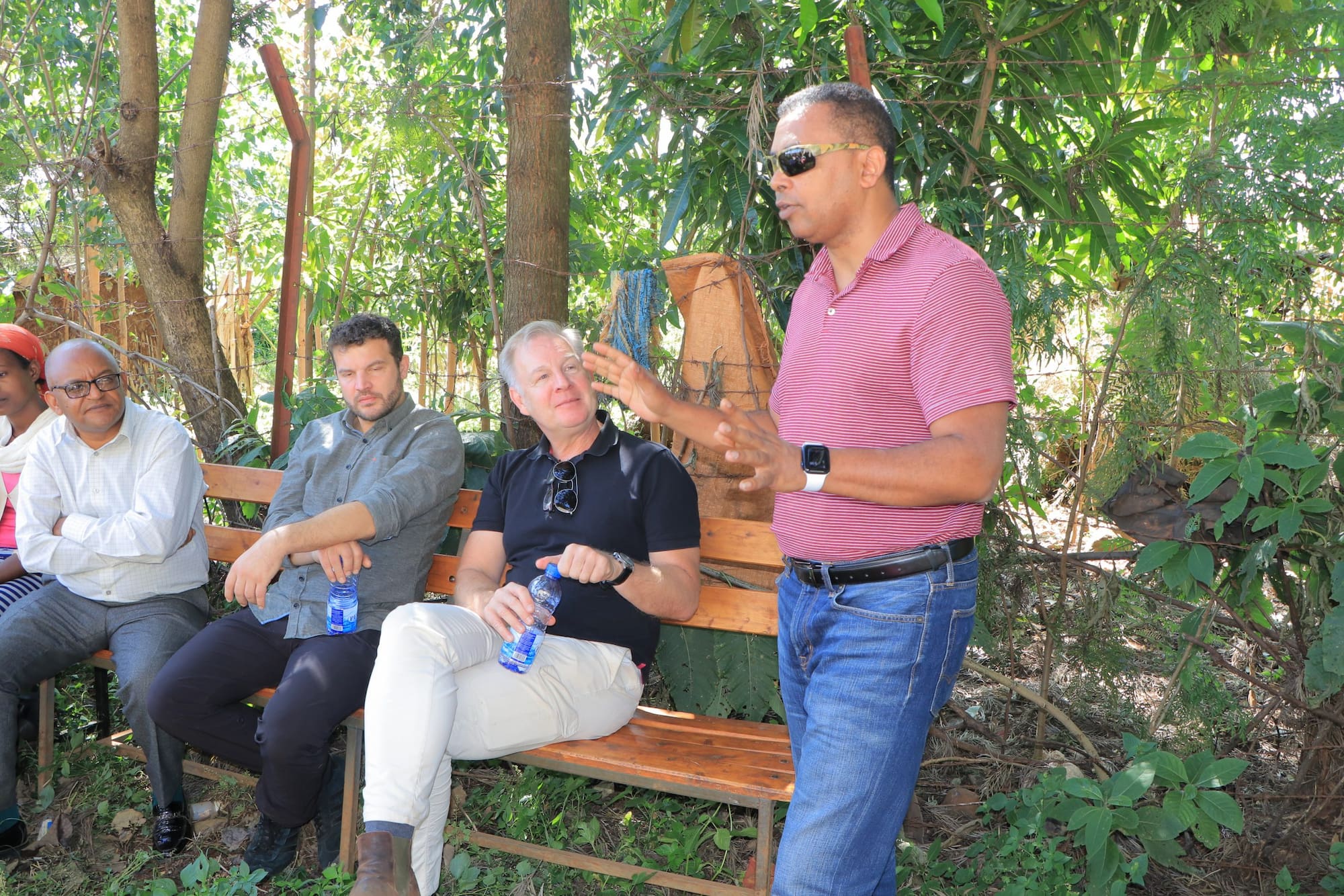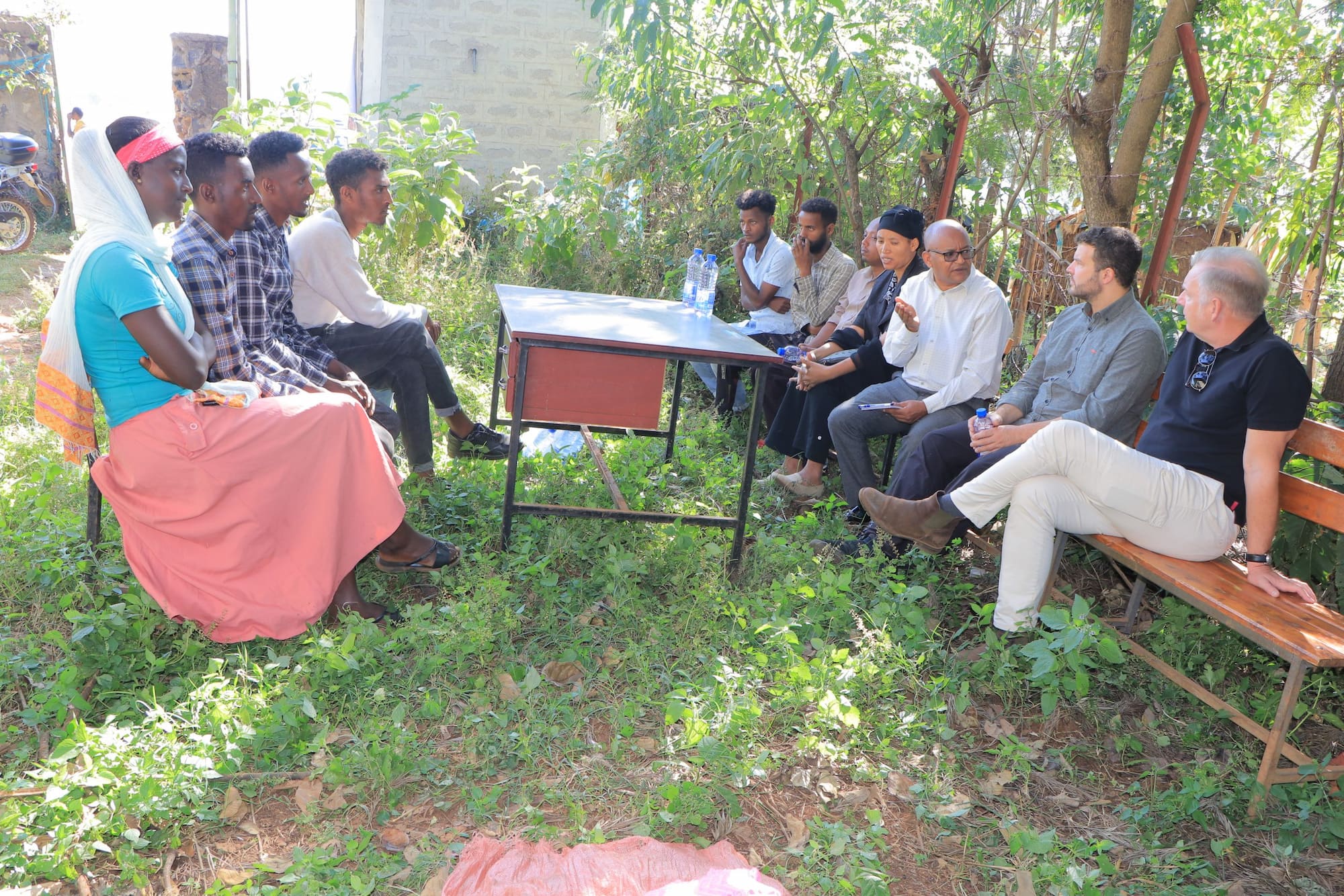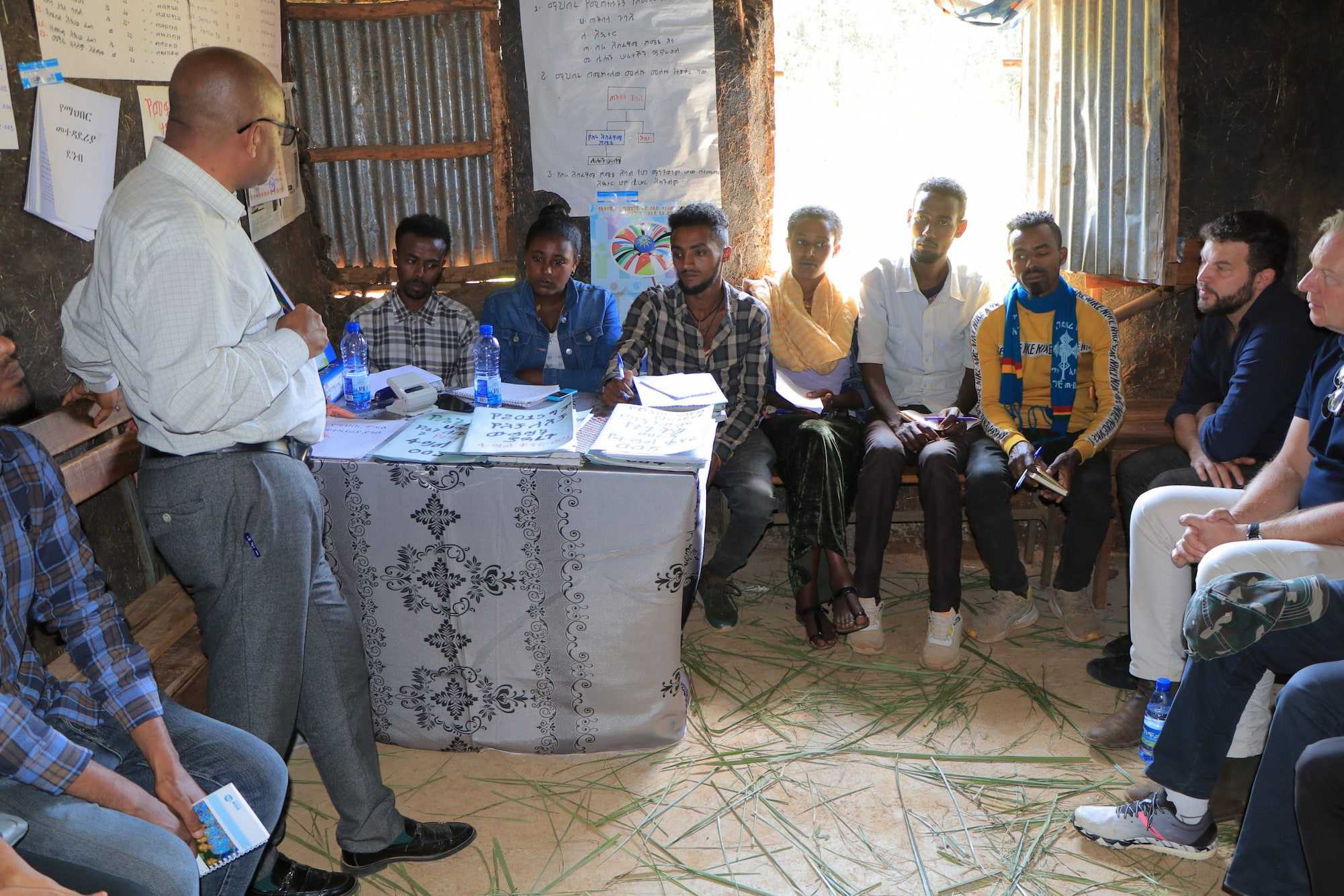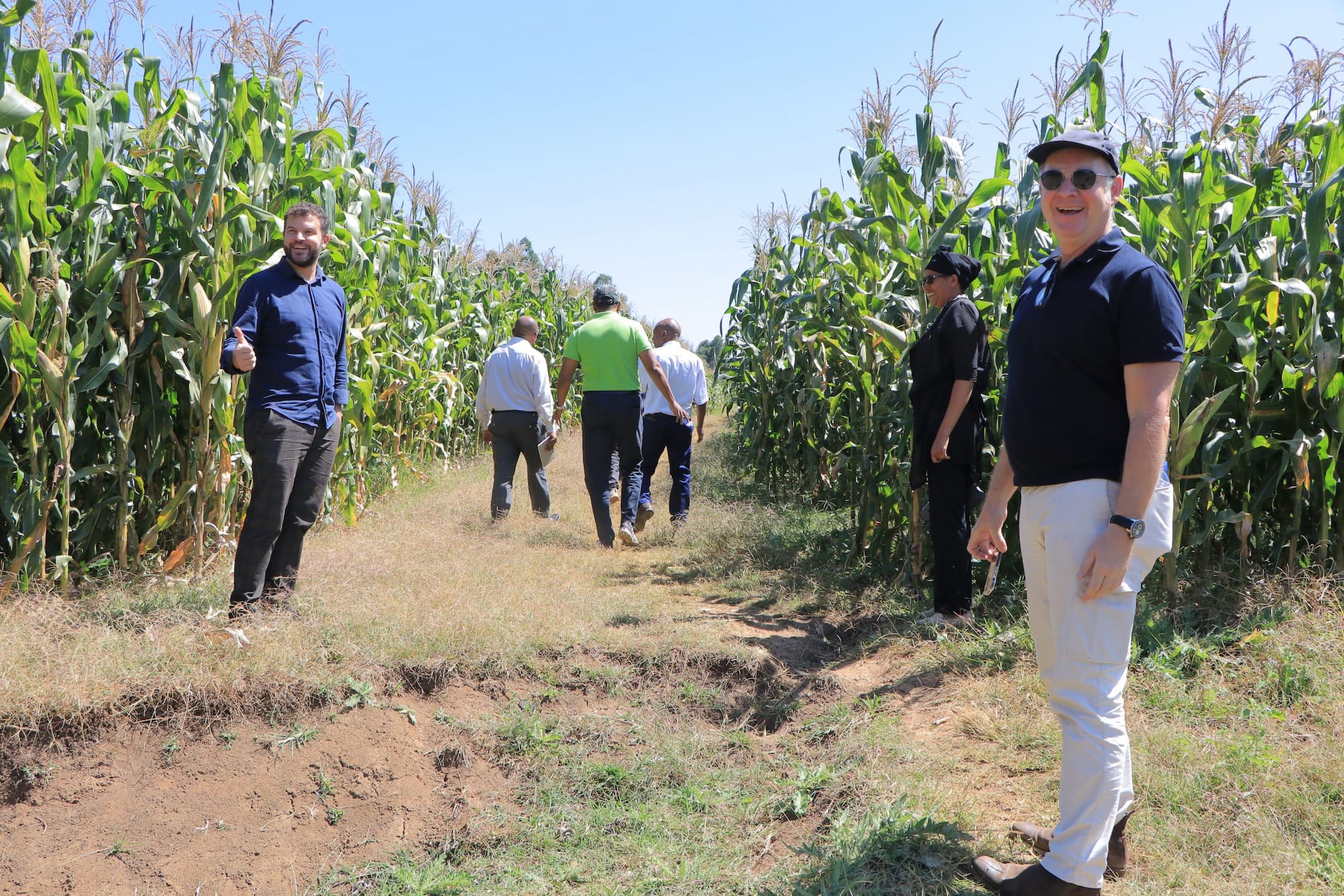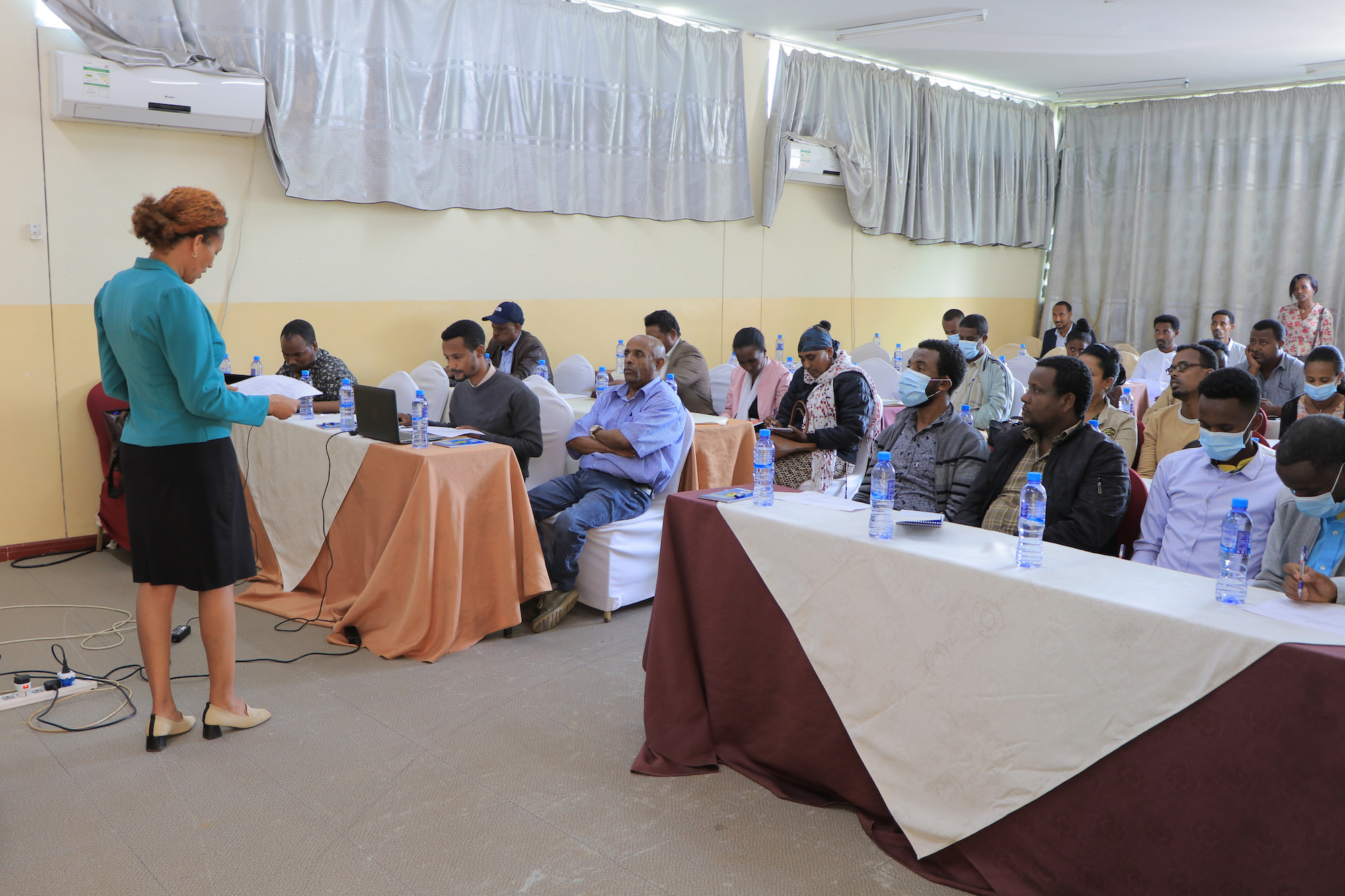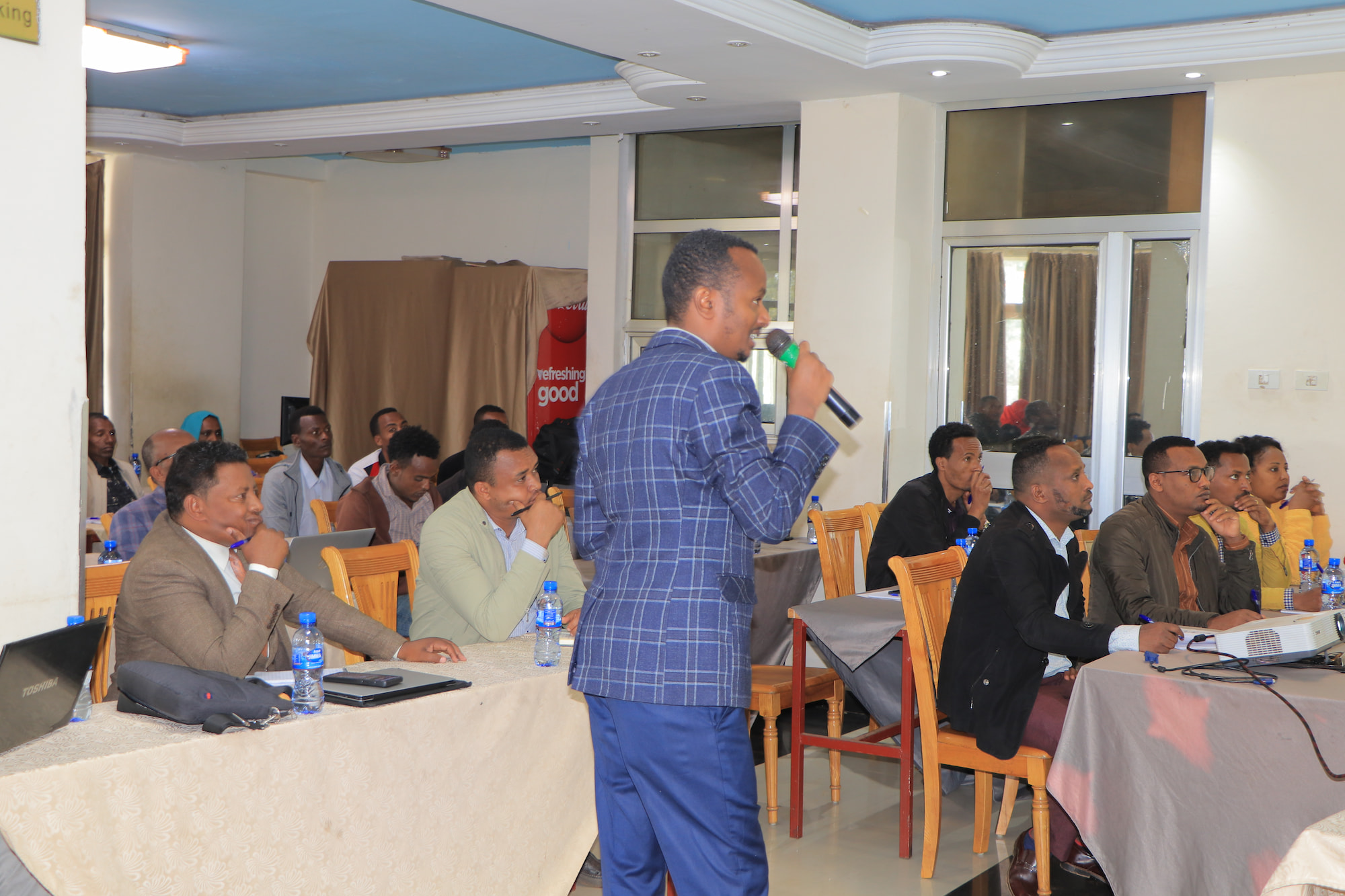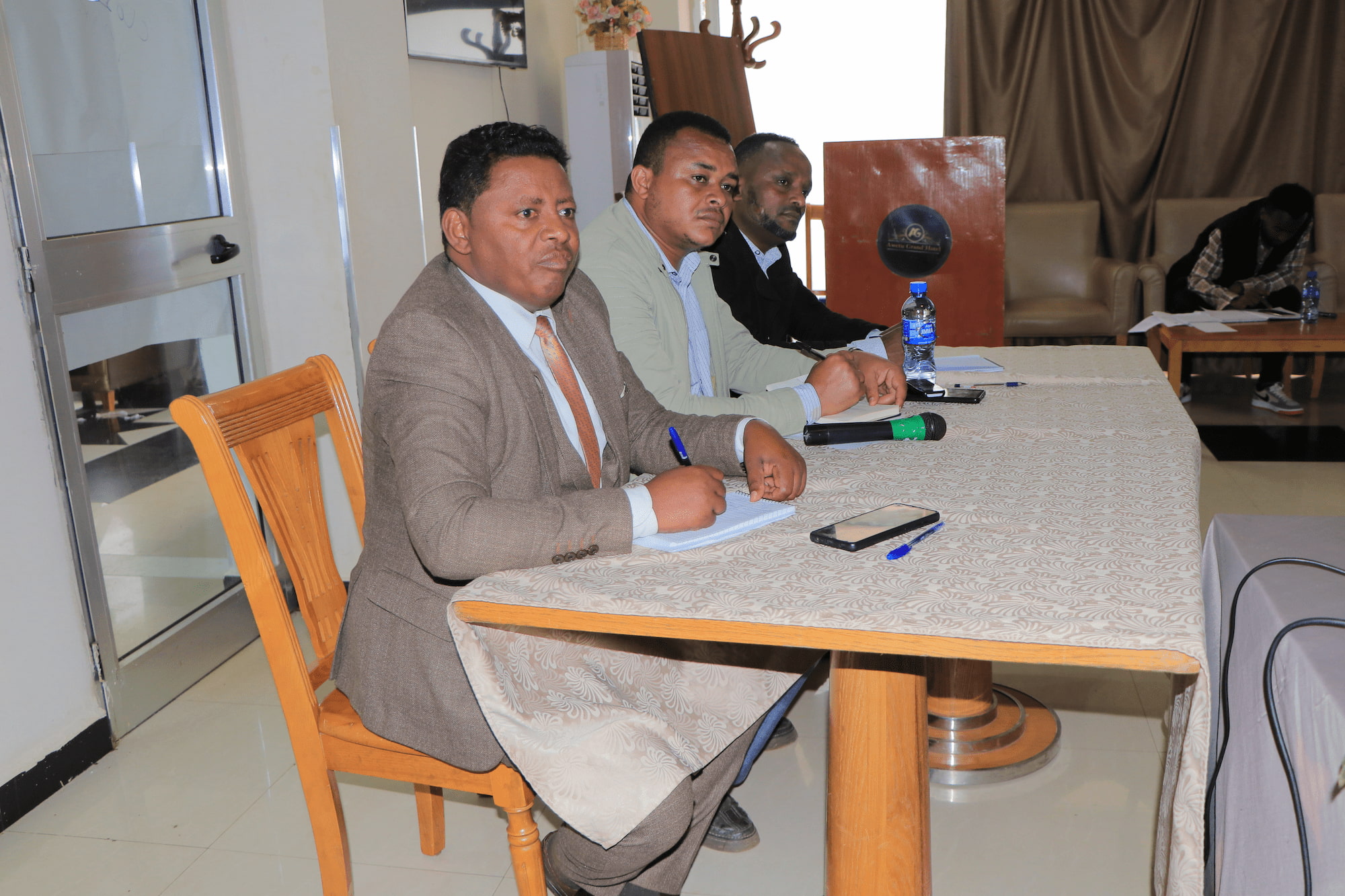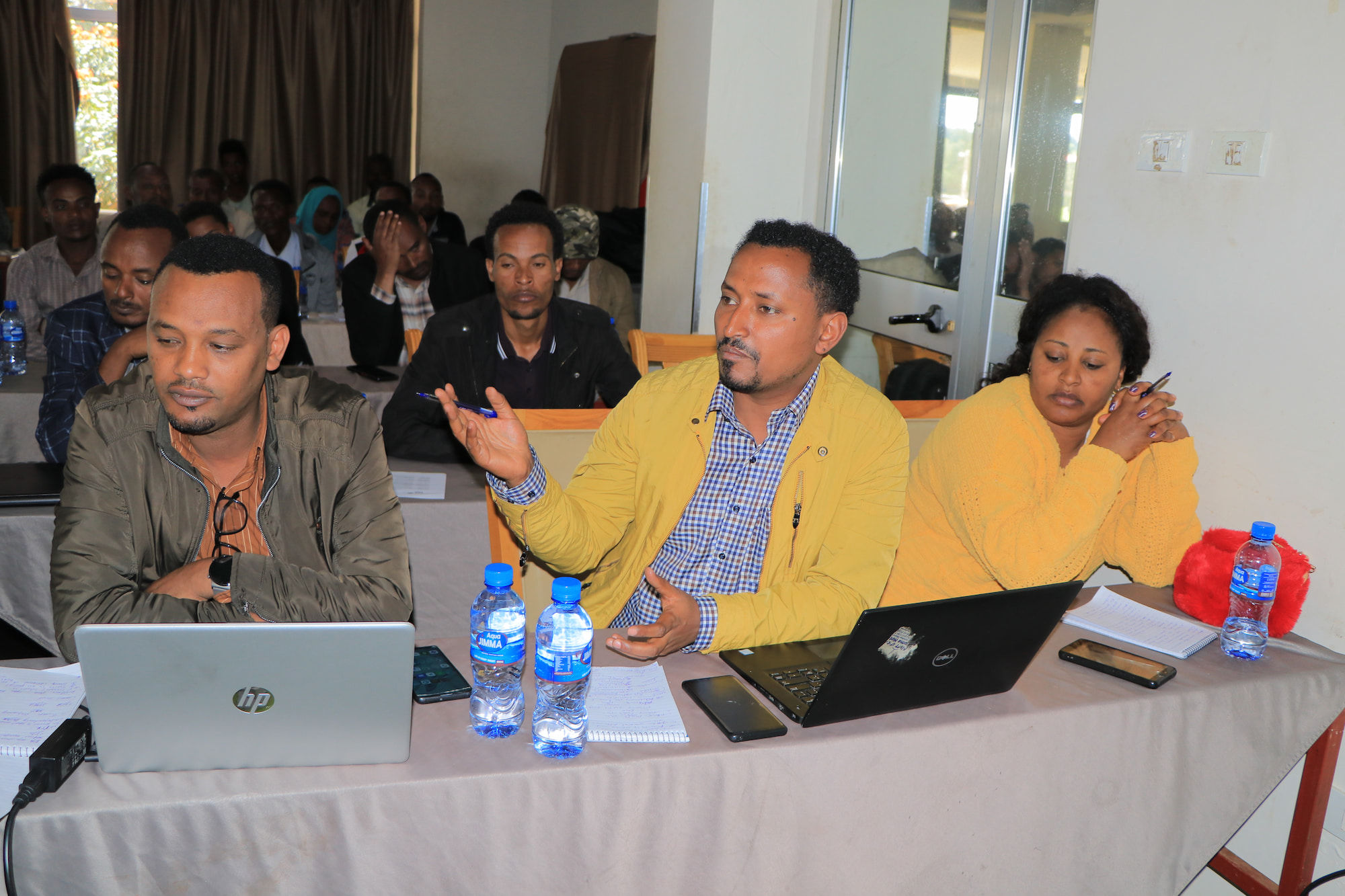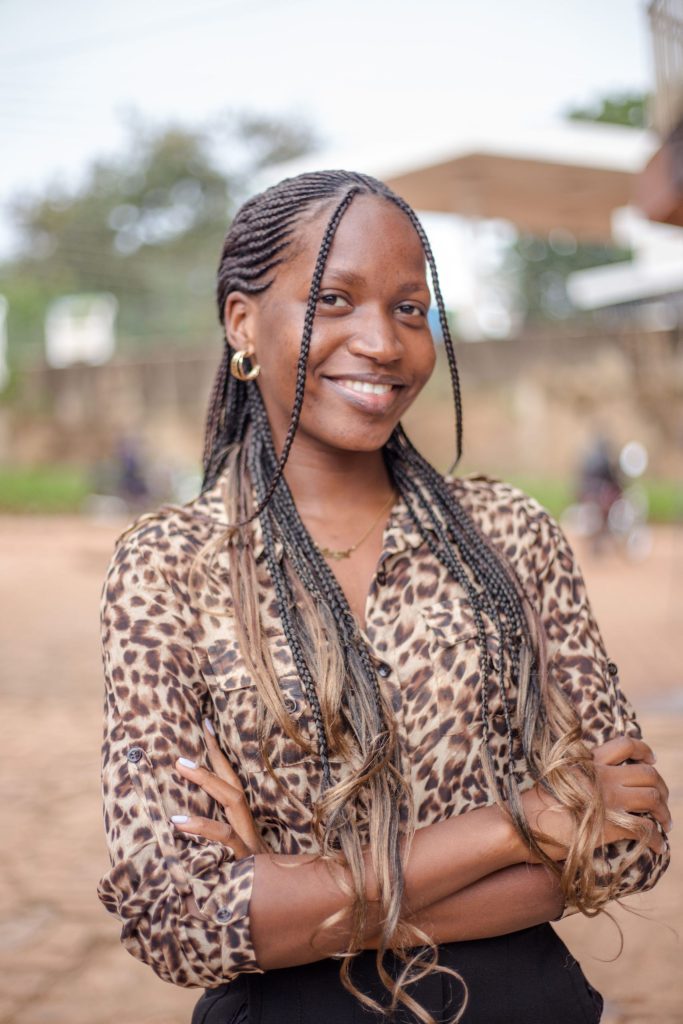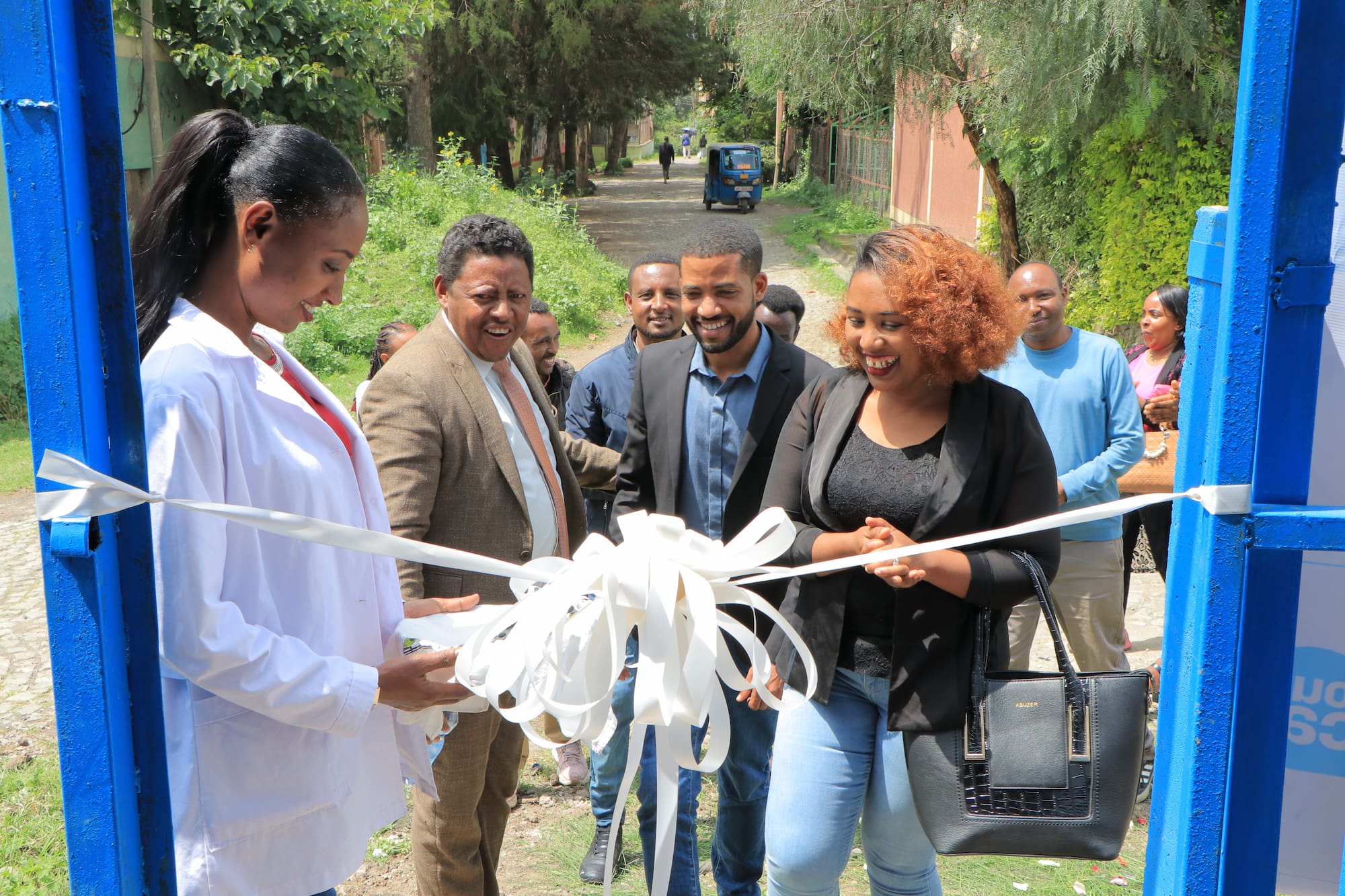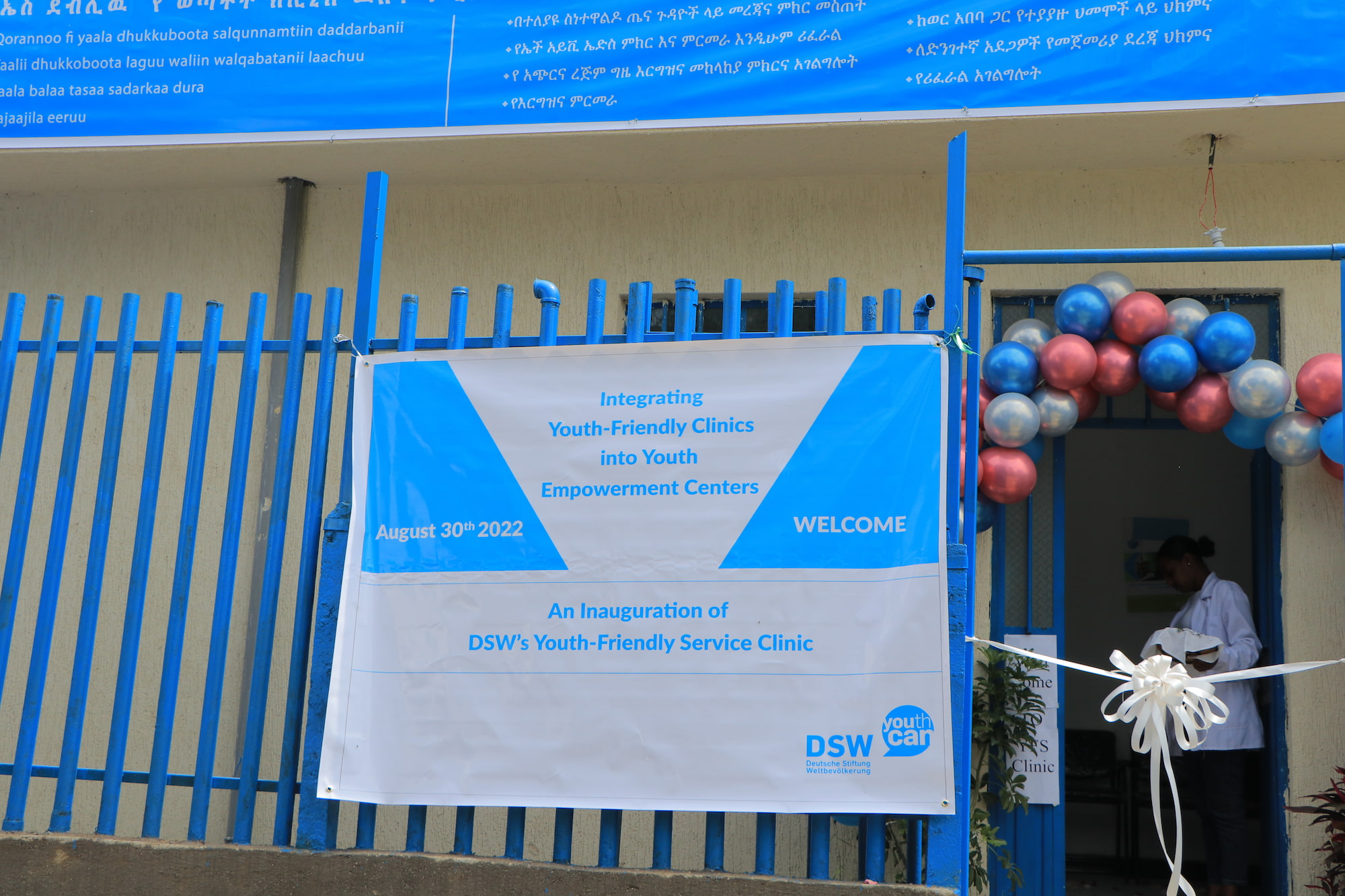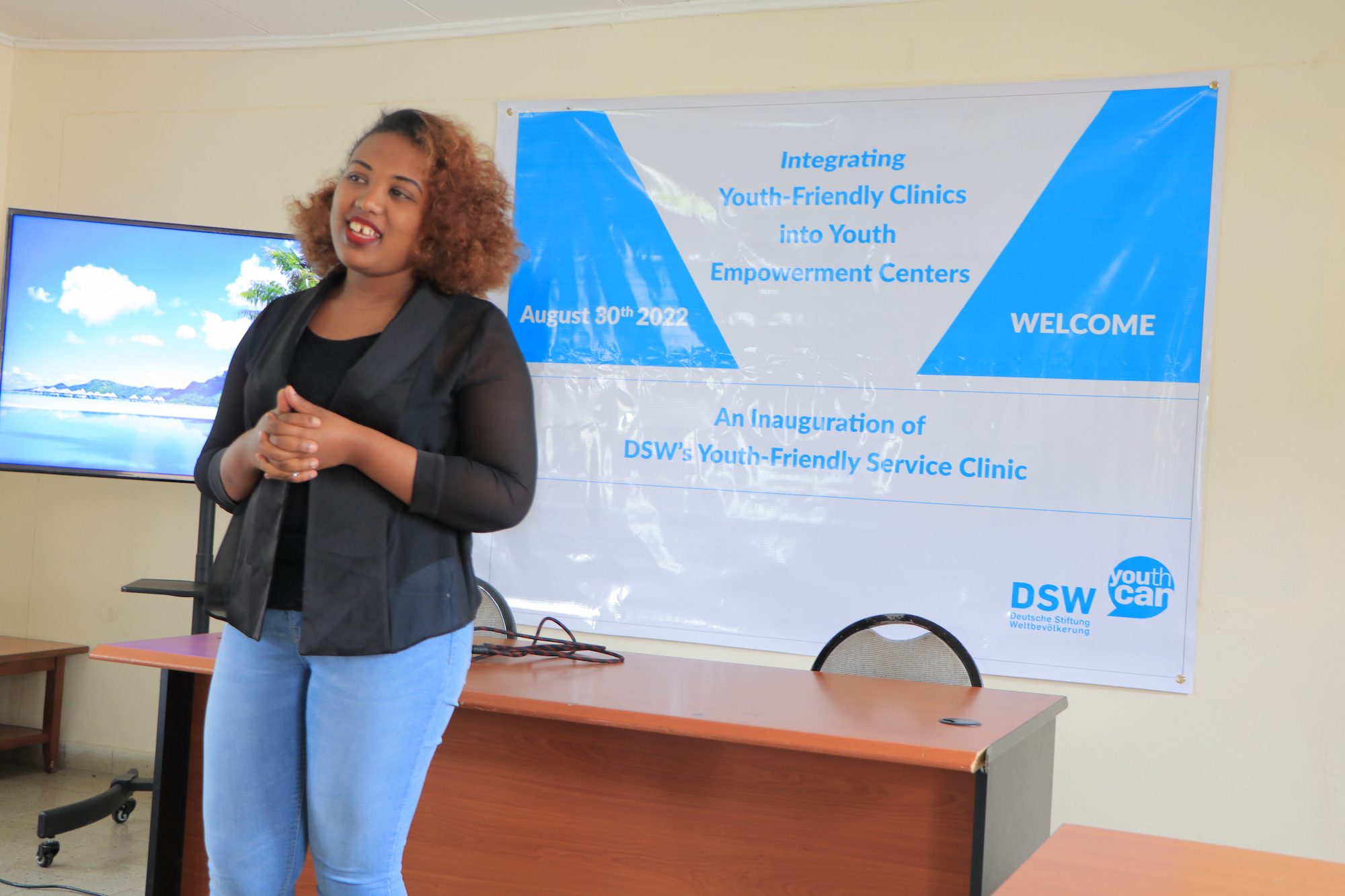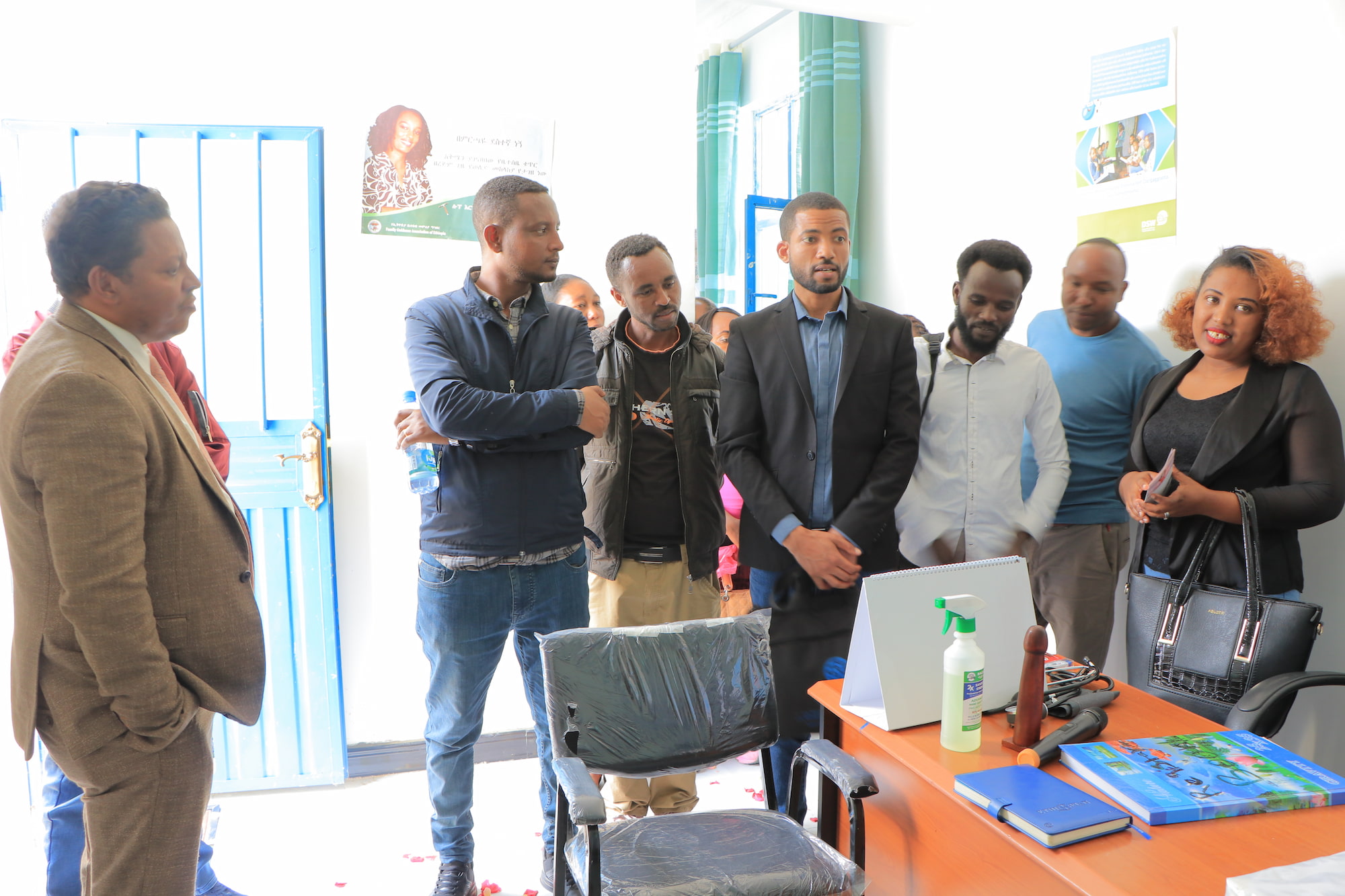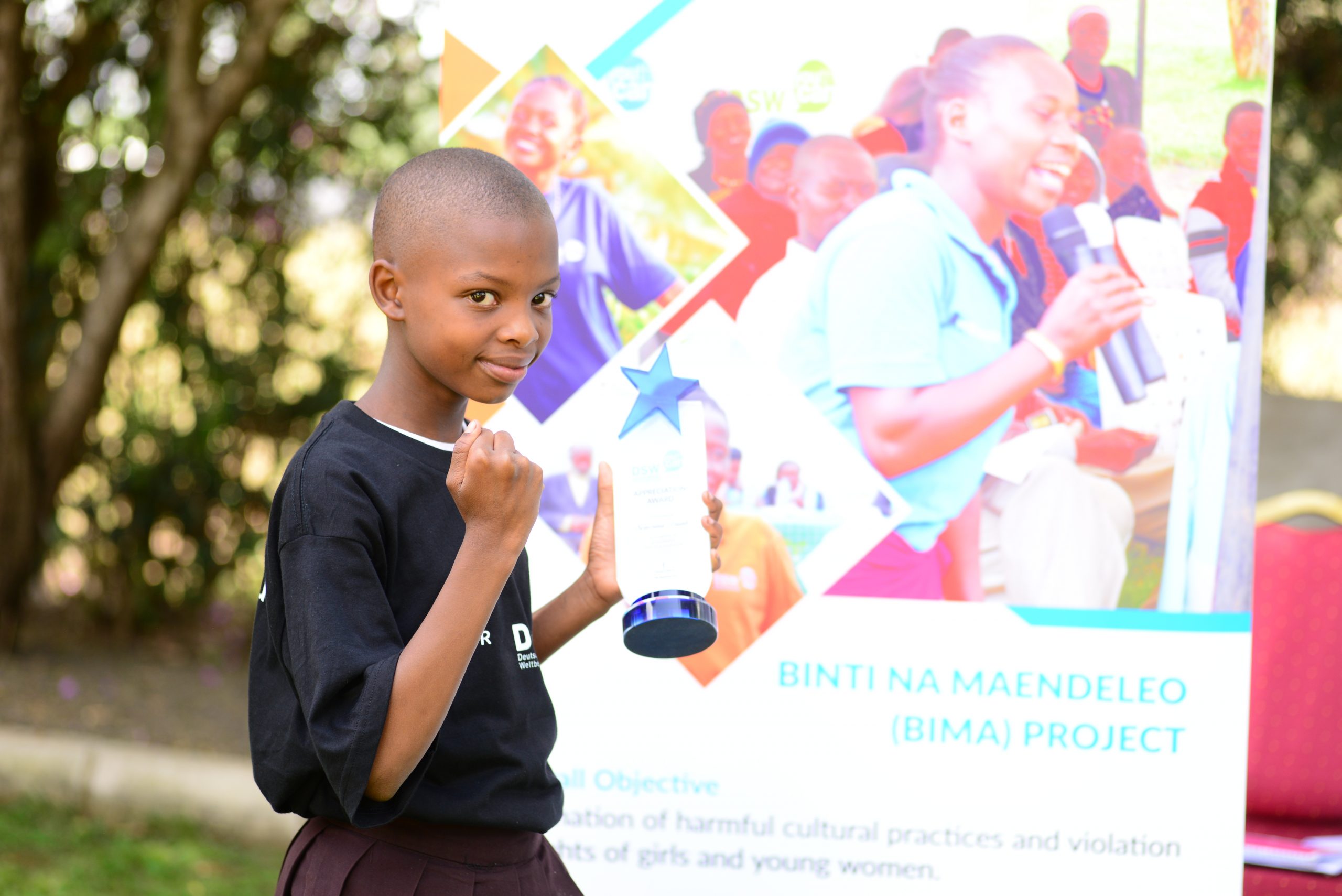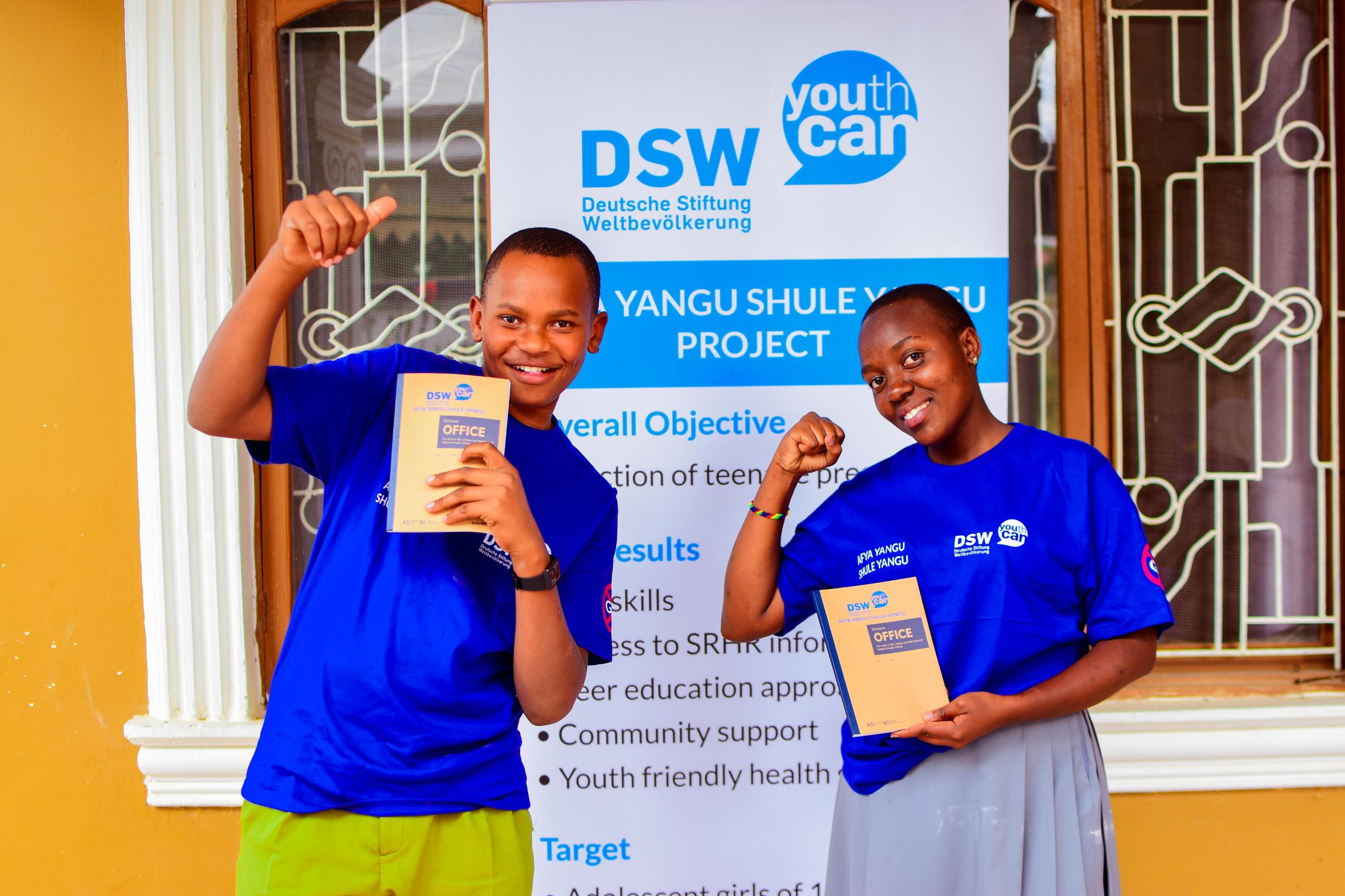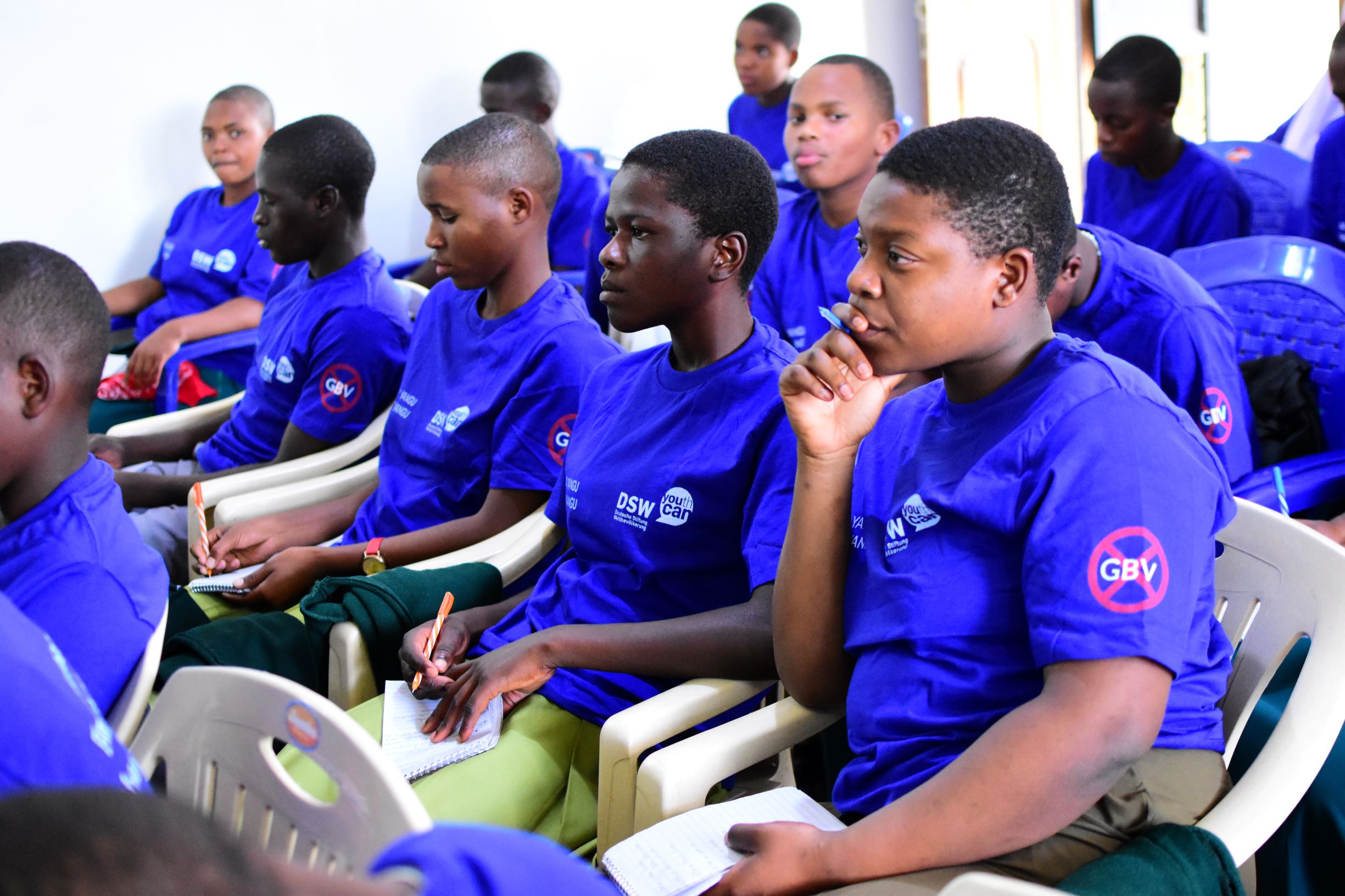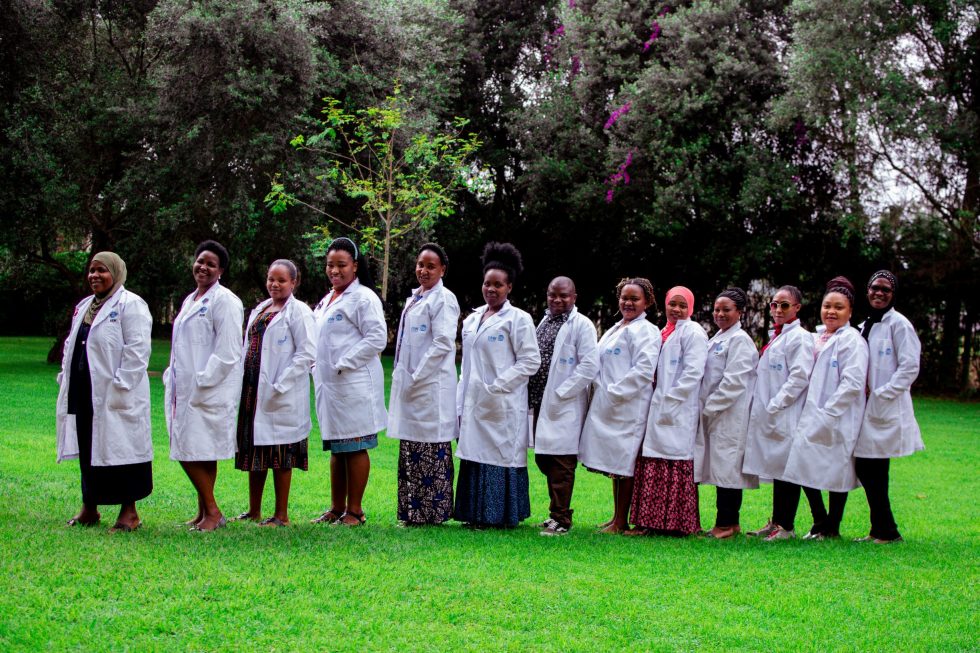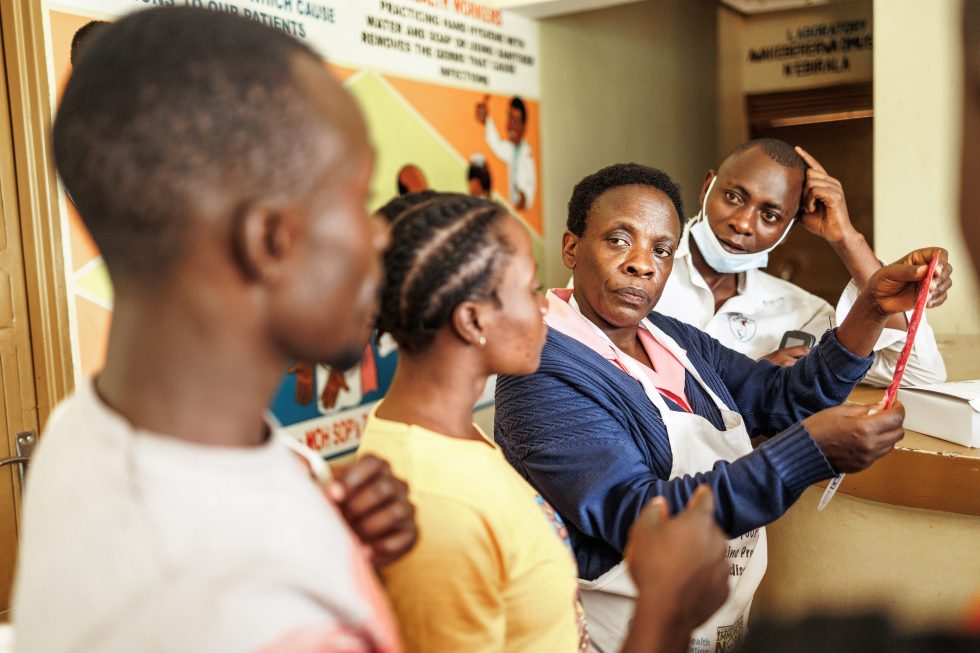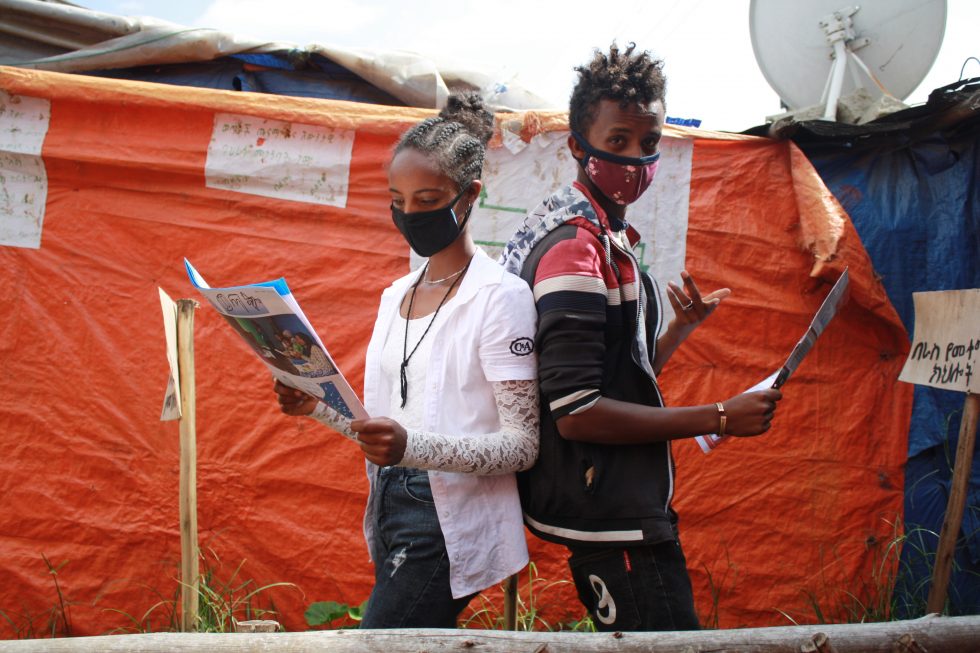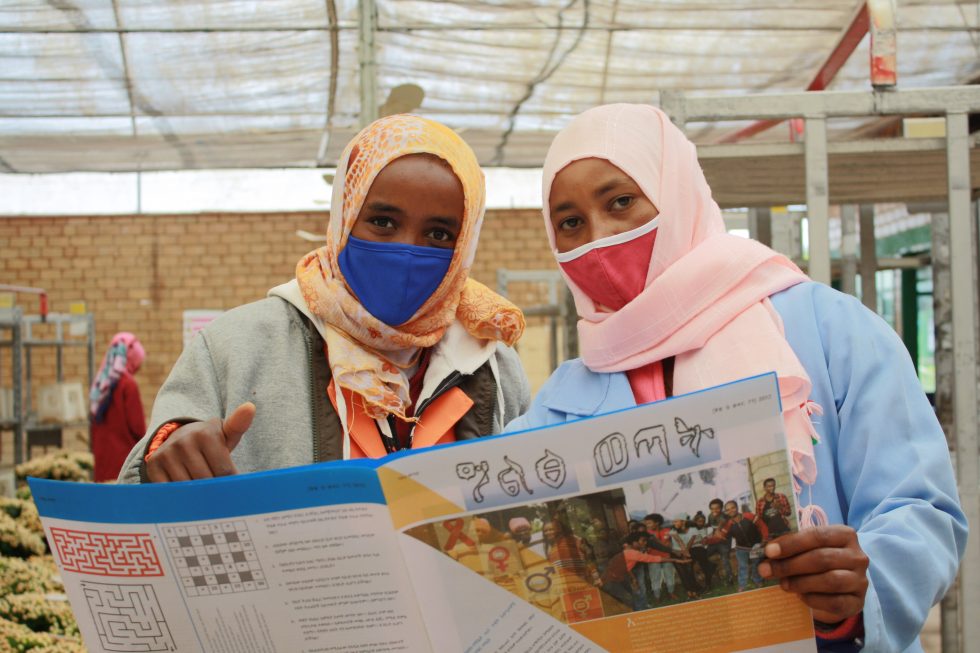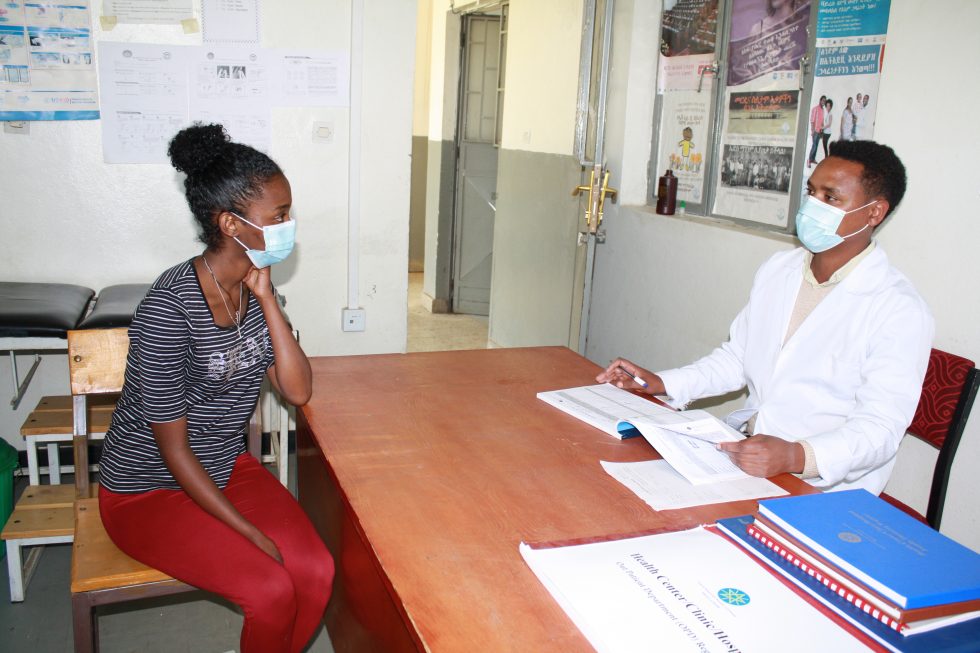By Chebet Marcelina, Adolescent Champion from West Pokot, Kenya.
My journey as a young leader began at age 13 when I became a member of the West Pokot Children’s Assembly. Through my active participation and mission of amplifying the voices of young people to address their challenges in all platforms, I was elected unopposed as the governor of the West Pokot Children’s Assembly for two terms (four years). My role as governor was to oversee debates in the Assembly, which brought together children from different sub-counties from West Pokot. I was also tasked with presenting the outcomes of the debates to the county government. In 2018, I submitted a memo to the governor, with recommended solutions to the problems children in West Pokot face.
Being a governor not only built my leadership skills but also empowered me through a variety of forums including the 30-years celebration of the United Nation Convention on the Rights of children. After graduating from the Assembly, I joined Declares Kenya, a youth network that advocates for Adolescent Sexual and Reproductive Health and Rights (ASRHR). They linked me to DSW Kenya, where I was onboarded as a champion under the Youth for Health Project.
Under the project, I was trained and engaged in the budget making process, through sectoral hearings and the West Pokot Department of Health’s annual development work plan. I presented a memo on the need of prioritisation of ASRHR. In West Pokot, the rate of teen pregnancy is 36%, according to Kenya Demographic Health Survey. Most adolescents lack knowledge on SRH resulting in teen pregnancies, school dropouts and unsafe abortions. Therefore, SRH information and services are crucial and influences young people’s decision making. The memo highlighted the need for adolescent and youth friendly services in the county health facilities, complete with adequate staff trained on offering these services. It also called for budget allocation to ASRHR to enhance access to information and services.
I had the opportunity to attend the 5th Gender is My Agenda Campaign (GIMAC) s strategic engagement meeting with the African Union, Regional Economic Communities, and partners in Nairobi in July 2023, with the theme: “Accelerating African Continental Free Trade Area (AfCTA) Implementation: breaking trade barriers of African women and ensuring their inclusion, knowledge and relevance”. Deliberations focused on promoting gender responsive trade policies and practices in Africa, ensuring that no woman is left behind in trade.
The event also commemorated Maputo@20, which marked 20 years since African Governments adopted the Protocol to the African Charter on Human and Peoples’ Rights on the Rights of Women in Africa (the Maputo Protocol), defining the rights of women and girls across Africa. It was inspiring to see Dr. Nyaradzayi Gumbonzvanda, human rights lawyer and the Founder and Chief Executive of Rozaria Memorial Trust, receive an award for contributing towards the implementation of Maputo Protocol, which has engendered a unifying effect within women’s movement in Africa and fostering a concerted effort to address matters important to women and girls.
Musa Ogony, Regional advocacy officer and Norah Nyamvula and Marcelina Chebet, the Youth For Health adolescent champions at 5TH GIMAC RECS meeting in Nairobi in July 2023.
Photo subtitle: Musa Ogony, Regional advocacy officer and Norah Nyamvula and Marcelina Chebet, the Youth For Health adolescent champions at 5TH GIMAC RECS meeting in Nairobi in July 2023.
I was happy, for this was one of the platforms that enabled me to engage senior leaders and amplify the needs of young people. I learnt that young girls and women need to exercise their SRH rights and access SRH services to meaningfully participate in trade.
I was part of the health panel on improving SRH and enhancing the economic empowerment of women and adolescents under AfCTA. Here, I shared experiences of young people including those abled differently in accessing SRH in rural areas. I highlighted the need for availability of SRH information and services to protect them from transactional sex, sexual exploitation and gender-based violence. This way, they can practice bodily autonomy and participate in economic and social development.
I am glad that the recommendations made in the panel to the AU Heads of State meeting were adopted. They included:
- A gender responsive institutional framework, policies, strategies and action plan integrating gender at all levels of decision making and sharing with member states national gender units with relevant ministries to coordinate gender mainstreaming efforts in AfCTA Implementation
- Establishing mechanisms for gender responsive trade disputes resolution including representation of women and youth to raise issues concerning their experiences
- Investing in strengthening health facilities under AfCTA and ensure private sector invest more and give access to women and youths through production of affordable and high quality SRHR products and services.
I also participated in discussions on facilitation of AfCTA and the practicality of its implementation and process in creating opportunities for youth, youth advocacy training, gender and agriculture.
In the one of the sessions, men were bought together to be part of women empowerment and to call for balancing the beam of equality, giving their own views and addressing their own issues not forgetting to applaud the milestones made by both genders and stakeholders over the years. This was a key reminder of teamwork, bringing like-minded people and applying multi-sectoral approach to help realise goals.
I also got a chance to interact with inspiring advocates from different parts of our continent. Their experiences taught me to be bold and firm in speaking out on issues and keep on with the spirit of advocacy on different platforms. Seeing other advocates win awards for their progress inspired me to be more aggressive and put more effort to grow in mind.
Throughout the sessions, I realized that advocacy is indeed a journey that requires full commitment in practicality and a receptive mind. I believe youths can influence change for their own issues: Nothing for the youths without the youths.
The Youth for Health Project
The Youth for Health (Y4H) project is a three-year initiative co-funded by the European Union that works to expand access to life-changing adolescent sexual and reproductive healthcare and rights. Its focus is on reaching the poorest and most marginalized adolescent girls, including those living with disabilities, and in rural and hard-to-reach areas of Ethiopia, Ghana, Kenya, Sierra Leone, Tanzania, and Zambia. By unlocking demand and access and contributing towards changes in favor of supportive policies and funding environments, Y4H will increase and sustain access to reproductive choices for girls and young women.
Youth for Health is being implemented by MSI Reproductive Choices together with Deutsche Stiftung Weltbevölkerung (DSW), Centre for the Study of Adolescence (CSA) Kenya, Health Alert Sierra Leone (HASiL), Youth Advocates Ghana (YAG), Sikika in Tanzania, Restless Development Zambia and Youth Network for Sustainable Development (YNSD) in Ethiopia.
For more information on DSW’s role in the Youth for Health project, see our project page.
Photos: DSW
Was Sie auch interessieren könnte:
DSW Ethiopia enjoys a high level of visibility at scientific conference
Read more
DSW and UNFPA Merge Efforts in a Renewing Spirit of Partnership
Read more
Through the Youth for Health (Y4H) project, co-funded by the European Union, MSI Tanzania is working with the Ministry of Health and partner organisations, Sikika and DSW, to support young people with their sexual health and reproductive choices by increasing awareness, ensuring services and training public sector facilities to deliver adolescent-friendly services. One of these facilities is the Kivukoni health centre in Ulanga, Morogoro region, where Zawada Kassimu Zangamela, aged 19, accessed contraception. Read her story:
“I had to drop out of school after getting pregnant while in form two. Even though I had no complications, it was a difficult period for me. When I started going for my ante-natal visits at the Kivukoni health centre, I was scared of what the health centre service providers would say and feared the backlash, given my young age. Surprisingly, they were very welcoming, kind and helpful. Throughout my pregnancy, the service providers would often educate me about family planning, the different methods available, its benefits and why I should consider it after delivery.
After giving birth to my son, the service provider advised me to use family planning and I decided to have an implant method. My son is now three months old; I want a better future for him. I believe using family planning will help me with the spacing of my children. I am not ready to have another child as I am not financially stable. Also, being a young mother is not easy. I have many responsibilities, which I already find hard to juggle. Based on my circumstances, I decided I did not want to return to secondary school to continue my education. Instead, I have joined a course in sewing, and I am almost graduating. This is the only way I can work and provide for my son.
Back then, the only information I knew about family planning was what I learned from friends and peers in school. I didn’t know much about the methods or what family planning entailed. But now, I am well-equipped with the necessary knowledge and can easily access these services at the health centre. Looking back, if I had access to the right information and the use of family planning, I could have made a different choice. In hindsight, if I knew what I know now, I would strive to finish my education and get a job before considering becoming a mother.”
The Youth for Health Project
The Youth for Health (Y4H) project is a three-year initiative co-funded by the European Union that works to expand access to life-changing adolescent sexual and reproductive healthcare and rights. Its focus is on reaching the poorest and most marginalised adolescent girls, including those living with disabilities, and in rural and hard-to-reach areas of Ethiopia, Ghana, Kenya, Sierra Leone, Tanzania, and Zambia. By unlocking demand and access and contributing towards changes in favour of supportive policies and funding environments, Y4H will increase and sustain access to reproductive choices for girls and young women.
It is being implemented by MSI Reproductive Choices together with Deutsche Stiftung Weltbevölkerung (DSW), Centre for the Study of Adolescence (CSA) Kenya, Health Alert Sierra Leone (HASiL), Youth Advocates Ghana (YAG), Sikika in Tanzania, Restless Development Zambia and Youth Network for Sustainable Development (YNSD) in Ethiopia.
Was Sie auch interessieren könnte:
And the winners are…..
Read more
Pioneering youth club member creates “Youth can” App
Read more
It was stated that the implementation of the “SAfA Project” should be made more effective by enhancing synergies among the implementing partners. Leveraging synergy will play a significant role through coordinating resources, enhancing visibility, following a standardised style of communication, sharing experiences, and ensuring effective project execution.
It has been two years since the “SAfA” project started in Ethiopia. During this time, the various activities planned by the project are being carried out by three implementing partners, namely DSW Ethiopia, HRNS Ethiopia, and the Elias Melake Foundation. The aim of the project is to improve the reproductive health and livelihood prospects of young people. The project is expected to reach and support more than 73,000 youth. DSW’s work within the project focuses on the reproductive health of adolescents and youth, HRNS has been carrying out various support activities aimed at improving the livelihood prospects of the youth, focused on agriculture, while the EMF, has been facilitating entrepreneurship, logistics, and supply chain management trainings.
In a meeting held at the Haile Grand Hotel by the Project Coordination Unit, a joint discussion was held exploring the two-year duration of the SAfA project so far. Angela Bähr, Deputy Executive Director of DSW, as well as Peter Kroll and Lora Yousef from DSW’s Head Office participated. From DSW’s Ethiopian country office, the Country Director, Feyera Abdissa, and other experts were present. Officials from other implementing partnerships, HRNS and EMF, and other experts also participated in the joint meeting. At the joint meeting, the performance of each of the implementing partners in the last two years as well as the next work plans were presented to the participants. The three implementing partners together discussed the work performance of the “SAfA” project from the time it started until now. In addition, donor-related guidelines and financial management procedures were jointly reviewed.
After the meeting, a field visit was conducted in the Semien Mecha and Jabi Tehnan districts of the West Gojjam Zone of the Amhara region. During the visit, members of the SAfA executive committee, officials, and experts from all implementing partners were able to see the overall activities being carried out by all three organisations.
One of the activities seen during the fieldwork visit was the “Semien Mecha Youth Empowerment Center” activity. Mr. Tazebew Geremew, the coordinator of the Youth Empowerment Centre (YEC), who gave an explanation to the visitors about the overall activities of the center, said, “Our YEC is doing various activities focusing on the reproductive health of the youth. We have received various training and material support provided by DSW. Currently, we are working on awareness-raising activities aimed at preventing HIV and sexually transmitted diseases, preventing unplanned pregnancies, and expanding information on family planning services using DSW’s AYSRH Manual. We are systematically using peer-led dialogue, door-to-door visits, and mass campaigns to increase coverage of reproductive health information.”
Pictured above are five women, who are members of the YEC, who received training from DSW on the production of reusable menstrual hygiene products and the use of sewing machines. In addition, they have been provided with start-up materials for the production of these products. This aims to encourage women and clubs to engage in income-generating activities and address reproductive health issues related to menstrual hygiene.
Apart from the training, they were provided with a sewing machine to produce reusable menstrual hygiene products. The women who received this training and sewing machine said, “Now we have started producing reusable menstrual hygiene products for trial using the sewing machine that DSW gave us. Next, we will produce reusable menstrual hygiene products that are of high quality and suitable for young women and offer them to the market at an affordable price.”
Shewaye Tsehayu, the coordinator of the five women, gave an explanation to the question raised about whether the demand among the society is enough, “In our area, one of the reproductive health problems that young women face in their daily lives is poor hygiene during menstruation. The reason is that at this time, women cannot easily find reusable menstrual hygiene products, and the prices of products on the market are either not affordable or do not take into account the purchasing power of young women. There are women living in our area who do not leave the house until the menstrual cycle is complete. As a result, they are forced to miss school and even drop out. Therefore, our production of reusable menstrual hygiene products and marketing them to young women in our area, apart from generating income, plays a significant role in reducing reproductive health problems.”
According to the members of the YEC, who responded to the question raised by the DSW Deputy Executive Director, Angela Bähr, about the price and where they intend to sell the reusable menstrual hygiene products, “The pricing process is based on our cost of inputs, researching the selling prices of other manufacturers, and considering the purchasing power of young women in our area.” In addition, the members of the center said, “We will soon receive a market place or a shed from our local government that will be used to sell the reusable menstrual hygiene products we produce. Besides taking over this market place or shed, we are carrying out the process of issuing a legal business license”, they said. In the future, it will be possible to find the products permanently in a market or shed. They will also go to different places to promote and sell them. They plan to use the income from selling these products to fulfill their needs, strengthen their centre, and do youth-centered charity work.
Mr. Tazebew Geremew, the chairman of the Semien Mecha YEC, said, “Based on the adolescent and youth SRH and life skills trainings we received from DSW, we are providing peer-to-peer discussions and cascading training to various young people living in our area.” For this, we are mainly using the DSW AYSRH training manual.
Angela Bähr shared her thoughts with the members of the centre: “Appreciating the efforts of the center to involve women in the work it does, it is necessary to increase the participation of women and to strengthen joint efforts to reduce the challenges that may reduce young women’s participation.”
“DSW provided us with training to make safe, washable, and reusable sanitary pads. This will help women in our area have access to safe menstrual protection, help protect the environment, and help us generate income by selling these products in the market.”
Another highlight during the fieldwork visit was the work of the female change agents, who are members of the Ambo Mesk YEC. Female Change Agents are young women who are working to reduce reproductive health problems in their communities by conducting door-to-door visits and community dialogue with a focus on married young women.
These young women said, “Limited access to SRH information and services contributes to the prevalence of unintended pregnancy. Community discussions and door-to-door visits conducted by female change agents enabled young married women in Ambomesk kebele to openly discuss SRH concerns, identify local problems, and ask for solutions. Through our current work, young married women and their partners have had the opportunity to understand the healthy practices and benefits of SRH. Through various discussions, young married women were informed about birth spacing, contraceptive use, and how to protect themselves from HIV and STDs. In addition to this, young married women who showed interest in getting reproductive health services were able to make a referral link with the government health institute.”
Another thing that caught the visitors’ attention during the fieldwork visit was the “Edget Behibret YAIG”, which is supported by all three implementing partners. Members of this club are also members of the “Ergib Youth Empowerment Club,” supported by DSW. They also received various trainings from the EMF. This club, located in a kebele named Ambash, has been received various types of support since it started working with the SAfA project.
The members of the group who gave an explanation of the visit said, “We have received various kinds of help from HRNS so that the agricultural work we are doing now and in the past can be effective. Of these, we were able to get fertilizer supply, knowledge about agricultural production methods, water usage, and so on. The knowledge we gained from the DSW trainings in reproductive health and life skills showed us how to make the most of our youth. Getting logistics and supply chain management training from the Elias Melek Foundation helped us effectively market the agricultural products we produced.”
Apart from this club, other clubs that are benefiting from the accessibility of the three implementing partners in the fields of reproductive health, agriculture, logistics, and supply chain management were also visited.
Photos: private
Was Sie auch interessieren könnte:
DSW Ethiopia Co-Hosts UNFPA-KOICA Donor Visits
Read more
POWER Entrepreneur: Joan Patience Atuhaire, SimplyFP
Read more
From 7 to 9 November, a team of donors, represented by the German Ministry for Economic Cooperation and Development (BMZ) along with the Stiftungallianz für Afrika gGmbH (SAfA), visited three projects, which are synergized under a shared programmatic outcome located in seven different sites in the Amhara region. One of these projects focuses on sexual and reproductive health, which is the key thematic area of DSW Ethiopia. The program also embraces the same number of implementing areas in the Oromia region. The projects visited are part of a four-year bound conjoining program nominally managed between three separate but implementing partners.
Merawi, a town located 20 kilometers east of Bahir Dar was one of the first destinations of the visit. Meftihe Youth SRH club hosted the first visit during which the leadership team explained and answered questions raised from their inquisitive guests.
Cascading the capacity development efforts in SRH and family planning issues through trained peer educators along with a series of peer-led discussion and referral links facilitation were revealed as the core activities of the club. The two donor representatives curiously asked how the youth club leaders conduct the activities promoting SRH issues without the challenge faced by the community members. In an interactive discussion, the youth club leaders reconfirmed the challenges that were present at the initial stage of the project. The club leaders further reassured the donors “as the advocacy efforts intent on creating an enabling environment with the involvement of Woreda/District Advisory Committee (WAC) steadily drew the roles of elders and religious leaders, among others, the community members eventually started to work with us and strongly cooperate with the change agents who are also volunteers at the youth club.”
The change agents, who were selected among female members of the Youth SRH club and conveniently work in collaboration with the health extension workers (HEWs) received specific trainings by DSW. Their core activities focus on pre-scheduled visits to the households where married adolescent girls and young women can be reached out through a home-to-home visitation for SRH information and service provision. These change agents conduct their activities to mobilize community SRH/FP service provision. Just as in the youth SRH clubs or youth empowerment centers, the change agents can facilitate referral links during their home-to-home visits of female households. They also use the information directory for quick reference of knowledge on SRH/FP issues and give information on outreach activities. This strategy ripples across all project sites and has been able to mobilize a significant number of young women who would have been hard to reach through other activities for enabling them to have access to SRH/FP information and services. Most are prescribed family planning services of their own choice with referral slips issued on their behalves by the change agents.
As part of the efforts to create a sense of ownership by community and government stakeholders alike, the tripartite agreements on the projects in the Memorandum of Understanding (MoU) form are signed by DSW, multi-sectoral-based relevant local government offices and the youth SRH clubs. By the same virtue, the Youth Agricultural Groups (YAG), the catalytic strategy of the HRNS’s part of the project to implement the livelihood aspects, has undergone similar processes using a multi-sectoral approach.
The two visiting donors inquired how in practice these three projects integrate a synergized outcome of the overall program. The three implementing partners in their respective expertise undertake different projects with specific outcomes. While DSW focuses on enhancing the sexual and reproductive health needs of young people, including materials supports and capacity development for health facilities, HRNS Ethiopia (Hanns R. Neumann Stiftung) engages in improving the livelihood prospects (in the agriculture sector) of youth and the EMF (Elias Melaka Foundation) intervenes in developing the food chain, logistics and market.
In a response to the general concern raised by the donors about the practicality of the synergetic connection of the project, Abebe Demisu, Program and Projects Department Manager with DSW explained that “each activity overlaps across the three projects in terms of benefiting different target groups of young people. The SRH/FP information needs of the whole target groups can be addressed by DSW’s intervention that makes the young people healthy and productive in their livelihood prospects. By the virtue of engaging the young people in peer-led discussion focusing on SRH topics and cascading these across the target groups, the uptake of services among them quickly increases. Much the same, the agricultural produces harvested by the specific target group need to get better market networks, understand the food chain processes and gain access to safe logistic mechanism. All these activities are interlinked using one means or another to enhance the sexual and reproductive health and livelihood prospects of young people in Ethiopia. Capacity development of the young people in SRH, enhanced farming model, entrepreneurship skills, and market intelligence remain a cross cutting effort.”
When asked by the visiting teams what the young people may have envisioned henceforth, the fast reactions came forth concerning budget. The youth’s expressed that if more budgets siphoned through the projects, the expansion of the young people’s livelihood prospects would have reached to a new high.
Retorting to their obvious expectation, Desalegn Eyob, Country Director of HRNS Ethiopia, gently reminded the youth about the exceptional opportunities that the eight billion world population brought in for people who engage in agriculture-related income-generating activities. Eight billion people around the world need to eat, at least, three times daily. Thus, the future lucrative business industry will belong to agriculture. “Part of the income generated from there grains should be used for reinvestment for expansion of a business model. Do not inflate your expectation from others, for the future has a great potential to enhance your livelihood prospects. Just work hard and keep going about it,” Desalegn advised.
The donors accompanied by the DSW and HRNS teams ended their visit with a tour of projects in Finote-Selam, including youth groups farming corn over two hectares of land, a youth SRH club, a public health center where referral services are linked, and the office premises housing DSW’s, HRNS’s and EMF’s core projects’ staff members.
Photos: private
Was Sie auch interessieren könnte:
DSW Ethiopia Co-Hosts UNFPA-KOICA Donor Visits
Read more
DSW and UNFPA Merge Efforts in a Renewing Spirit of Partnership
Read more
Two important policy advocacy workshops were held by DSW Ethiopia in Bahir Dar and Jimma towns recently. The main aim of these advocacy platforms was to sensitize stakeholders on youth sexual and reproductive health and rights (SRHR) and gender policy framework. Now in its second year, the project “Enhancing the SRHR and Livelihood Prospects of Young People” is being financially supported by Stiftungsallianz fϋr Africa gGmbH (SAfA). SAfA is committed to reaching more than 73,000 vulnerable young people in Ethiopia aged between 15 – 29 years.
The first of these two advocacy workshops held on SRHR and Gender Policy Framework took place on 29 August 2022 at the Homeland Hotel in Bahir Dar, in the Amhara region. The second workshop took place on 5 September 2022 in Jimma in the Oromia region. Bahir Dar and Jimma are two of the major towns where targeted communities have been taking part in the project since its inception in May 2021. Regional stakeholders at different levels who are involved in the project took part in the workshops. Officials from the Federal Ministry of Health (FMoH) were represented as keynote speakers presenting the policy frameworks and their legal provision, including the strategies used to implement the SRHR and gender issues in Ethiopia.
With a focus on violence against women in place, the rate of the legal frameworks that promote the enforcement and monitoring over gender equality under the Sustainable Development Goals (SDG) indicator for Ethiopia stood at 41.7 percent (UN Women, 2021). In his opening speech, Mr. Feyera Assefa, Country Director of DSW Ethiopia reminded the stakeholders that “the SRH and gender policy instruments are always assessed by DSW based on the outcomes set in the project’s objectives intent on contributing to the achievements of the third and fifth United Nations (UN) SDGs both in terms of reducing maternal morbidity, mortality, and gender inequality by the year 2030.”
“Since we launched this project in May 2021, we have remained committed to anchoring more and more advocacy workshops such as this, which has been tailored to impact on the enhancement of the SRH and livelihood prospects of young people in our country,” says Feyera as he went on to emphasize the importance of advocating on policy position and framework that address SRHR and gender issues, while at the same time being able to identify their gaps.
“For instance, sexual and gender-based violence (SGBV) which has been triggered over the recent past following the seemingly intractable conflicts in Ethiopia, which still potentially hovered over us have brought about a new challenge. This challenge can be an opportunity for us to start reexamining the gaps hinging upon the existing SRH and gender policy framework. Given this fact, the question would be how we can align the relevant legal provision to our works and address the needs for enhancing the SRHR and the livelihood prospects of youth from gender perspective,” Feyera asks.
Researches affirm that in spite of efforts to undertake numerous development programs and strong policies supported by feasible legal provisions, the degree of disparity in SRH and many other gender-related indicators in Ethiopia remain at stake and significant challenges are still lingering. “Despite the challenges lingering, there are so many opportunities worth exploring in the various national strategic documents, most importantly, the National Adolescent & Youth Sexual & Reproductive Health Strategy. These strategic materials are drawn not only from the youth-friendly policies adopted in Ethiopia but also the fact that the Federal Constitution itself provides explicit legal basis for enhancing the SRHR of young people,” stresses Mr. Abebe Tilaye, Adolescent and Youth Sexual and Reproductive Health Expert with FMoH and who presented his keynotes in Bahir Dar.
Further to this, Tilaye recounts, “our recent data indicates that disparity exists in sexual debuts across rural and urban youth observed at 16 and 18 years of ages in their respective categories. Overall, the unmet need for the family planning information and services remain at 26 percent and this figure obviously correlates to the prevalence of unintended teenage pregnancies. The way forward in meeting the needs of youth SRHR, enhancing their livelihood prospects and addressing the gender-related problems, including the sexual violence is bound to draw synergy and commitments from key development partners. In this case, high stakes rest upon DSW to play a lead role in the efforts to engage in more advocacy activities. By the same token, we will be able to increase the existing relatively low budget allocation or limited resources available for SRH programs in Ethiopia both at national and international sources”.
“When it comes to initiating and seriously undertaking a development intervention focusing on SRHR needs of adolescents and youth, DSW always exhibits consistency and we appreciate its commitments to increase the demand for the uptake of SRHR/family planning services. However, we also observe often the supply side being in shortfalls and hope this too will be addressed as DSW already set foot into conducting service provision,” asserts Dejene Deme, Adolescent and Youth SRH Expert with FMoH, who made a keynote speech at the workshop in Jimma.
The two advocacy workshops’ deliberations have streamlined strong action points, which include the demands created for SRHR services should meet the supplies in need through coordinated efforts. Government stakeholders along with other partners can work in a spirit of shared mission to create a sustainable environment for the supplies of SRHR/FP services. More so, the limitation observed in terms of effective implementation of the SRHR and gender policies at the local government units need to be addressed.
Photographs: private
Was Sie auch interessieren könnte:
POWER ENTREPRENEUR: ANGEL BABIRYE, US FOR GIRLS
Read more
Nothing suitable for you?
Send us an unsolicited application
Read more
On 31 August 2022, DSW Ethiopia opened its second of six youth-friendly clinics (YFC), with the aim of providing services in the area of sexual and reproductive health (SRH). The youth development training center in Bishoftu (Debrezeit) incorporates an in-house SRH service provision. This youth-friendly clinic, which is now operating at full capacity, functions in an integrated manner with the youth empowerment center aligned to it.
“Empowering youth is a long tradition of virtue in DSW’s strategic approach one which was initiated to address the sexual and reproductive health and rights (SRHR) of young people in Ethiopia. The establishment and strengthening of youth empowerment centers were born out of the needs for developing the capacity of adolescent and young people using age-appropriate SRHR interventions. The youth empowerment strategy has, all along been aligned to every SRHR-based project undertaken by DSW and each was tailored in encouraging young people to assume responsibility and self-determination over their own life,” says Feyera Assefa, Country Director of DSW Ethiopia during a half-day inauguration ceremony, which took place at DSW’s youth development training center where the new structure was built. The training center is also close to an established government youth center.
Sintayew T. Demissie, Adolescent and Youth Officer with the Federal Ministry of Health, noting that the FMoH continued its commitment and expanded the youth-friendly service provision corners by integrating them with youth centers. “We also appreciate DSW’s engagement and action that complemented our national strategy in which the youth-friendly services are prioritized. This structure built by DSW for the YFC is an exemplary model worth replicating”, Mr. Demissie acknowledged in an opening speech at the inaugural event.
In her keynote address, Lelisse Melkamu, Adolescent and Youth SRH Officer at the Oromia regional state’s health bureau, enthused about the fact that on one side of this youth-friendly clinic is a government-run youth center within walking distance and DSW’s youth development center on the other side, making it all the more convenient for young people to access the services. “This is an innovative virtue once again exhibited by DSW to reach out to the youth, bringing a youth-friendly service where the youth choose to be around spend their time.”, she declared.
“It was barely a year ago when we sought a project themed “Integrating Youth-Friendly Services into Youth Empowerment Center (IYFS-YEC)” and for the first time we embarked on providing SRH services rather than just engaging in disseminating the information, creating the demands for and enhancing an enabling environment for service provision through outreach and advocacy efforts, these have included the referral links,” asserted Mr. Assefa.
“Now we have become an organisation that works on providing SRH service. We have already developed the checklists for conducting measurable quality assurances and the engagements in terms of technical supports of the youth-friendly clinic, one which is inaugurated today and the five others also fall within the responsibility of DSW,” emphasised Segni Tefera, a Health Officer who oversees the youth-friendly clinics and is one of DSW’s growing team members with a background in health.
On the day of the opening, many stakeholders were invited to the launch of the clinic. Many young people, who were already at the youth center nearby, were also curious about the clinic and came to have a look at it. “It was all meant to go this way,” Mr. Assefa uttered as he encouraged the presence of the young people at the launch. “It is a friendlier one for you,” Mr. Assefa emphasised to the youth, “the youth center is not far away and the youth development training center is right over here, and in between you have got the youth-friendly clinic, which will ensure that your SRHR service provision needs are conveniently met.”
A youth-friendly clinic, one that is integrated into a youth empowerment center such as this, remains a core thematic intervention for DSW. Efforts to empower youth with SRHR will be attainable when young people actively seek out access to sexual education, health services and methods of family planning.
The concept of embedding the youth-friendly clinics with the youth empowerment centers (YEC) was driven by the fact that the in-and-out-of-school youth are interconnected by the YEC and through referral provision with which the health centers remain strongly linked with. Yet, the project support groups, which include stakeholders from influential members of the community who are part of these networks, have to create an enabling environment for SRH service provision by closely working with the YEC. The flying (mobile) nurses, a new modality initiated by DSW, remain integrated in the network of the youth-friendly clinics to deliver the SRH services where health center-based providers are not conveniently reachable by the youth.
Almost 33 percent of Ethiopia’s population consists of young people between the ages of 10 and 24. This figure constitutes the largest generation in the nation’s history. By virtue of this demographic bulge, no other competing development priority other than ensuring the health of these age groups makes the demographic dividend a real possibility in the future of the nation. In light of this fact, the youth-friendly service provision is a viable strategy to address the SRHR of young people.
Was Sie auch interessieren könnte:
DSW Ethiopia enjoys a high level of visibility at scientific conference
Read more
POWER ENTREPRENEUR: ANGEL BABIRYE, US FOR GIRLS
Read more
Girl’s empowerment and engagement in the fight against Female Genital Mutilation (FGM) has proved effective for raising voices to advocate for Anti- FGM efforts. Senorina Frank is a DSW peer educator who is the front line to eradicated harmful cultural practices. Senorina, is a school health club peer educator from the Binti Na Maendeleo project. She is one among many girls that volunteers to educate other girls and communities to protect girls against marriage, teenage pregnancy and Gender Based Violence. (GBV)
Senorina is a DSW Tanzania trained peer educator in the school health clubs.She is a charismatic, strong and courageous girl. Senorina is now a leader in her school and health club and has been recognized by her peers as a champion. During the launch of anti-FGM strategy Senorina and other Adolescent girls and young women participated in showcasing how girls can be effective in standing for their rights and sensitizing the communities to have a safe environment for girls.
During the DSW Tanzania project annual review meeting Senorina co- chaired sessions. Her leadership skills and volunteering spirit has made her to become a role model in her community . DSW Tanzania has also recognized her as Champion and Girls Ambassador. Senorina has been proud of her knowledge and her peer’s sessions. “ DSW Tanzania supported me to be who I am today. I am proud to be an ambassador against Anti- FGM . I urge other girls to join the fight against FGM’’. Senorina said.
Was Sie auch interessieren könnte:
POWER ENTREPRENEUR: ANGEL BABIRYE, US FOR GIRLS
Read more
POWER Entrepreneur: Joan Patience Atuhaire, SimplyFP
Read more
Everyone has once passed through adolescent stage or will reach that stage in life. This is a transition stage that encounters several social – economic challenges. Sexual Reproductive Health and Rights (SRHR) knowledge and life skills ensures adolescent girls are well protected to realize their full potential by staying in school to attain education. Investing in their good health and well being is an investment for high returns on education hence attaining demographic dividend. The World Health Organization (WHO) defines adolescents as people between 10 and 19 years of age. This age band includes early adolescence period between ages 10 and 14, and late adolescence period between ages 15 and 19. WHO further defines young people as those individuals between ages 10 and 24.
Tanzania has one of the youngest populations on the African continent, and according to the National Bureau of Statistics Population Projections, during year 2021, about a quarter (23%) of the population of the United Republic of Tanzania was adolescents aged 10 to 19 years, and young people aged 10-24 years make up about a third (32%) of the population. Based on this demographic pattern, Tanzanian adolescents and youth face a myriad of health challenges, Currently, the greatest risk factor for adolescent health in Tanzania is poor sexual and reproductive health and this contributes to increased risk to adolescence pregnancies and Sexually Transmitted Infections (STIs), including HIV/AIDS. The Government puts greater attention on gender equity, including increased attention on prevention of HIV amongst adolescent girls, and addressing violence against women given the fact that Adolescent Girls and Young Women (AGYW) are at a higher risk of HIV infection
Key drivers such as culture and economic barriers make adolescence to face several challenges which lead to unwanted pregnancies, unsafe abortion, and sexually transmitted infections including HIV/AIDS. DSW Tanzania is contributing to mitigate such challenges by an intervention called “Afya Yangu Shule Yangu” that literally translates as “My Health My Education” by complimenting to the improvement of health and well-being of adolescents by advancing the implementation of National accelerated action and Investment agenda for adolescent Health and well being (NAIA-AHW) 2021/22 – 2024/25.
Through the Afya Yangu Shule Yangu project DSW Tanzania addresses the issue of adolescent pregnancies in Secondary Schools in Dodoma, Tanzania by using in-school peer education and health clubs to reach adolescents individually and collectively. A three pronged capacity strengthening strategy is applied by giving Training of Trainers Orientation on various adolescent health related topics to adolescent Peer Educators, School teachers and Health Services Providers who liaise with the community leaders for a coordinated approach.The orientation themes includes menstrual hygiene, SRH knowledge, life skills, leadership, guidance and counselling and provision of youth health friendly services.
A group photo of Health Services Providers trained on Youth Friendly Health Services
The overall objective of the project is the reduction of teenage pregnancies with key expected results that includes Life skills, Access to SRHR information, Peer Education Approach, Community Support and Youth Friendly health services.The project anticipates to reach over two thousands adolescent directly with information knowledge and services. During the recent orientation workshop for HSP on provision of youth health services the Dodoma City School Health Coordinator stated that “The project capacity strengthening initiatives and community engagement has ensured that boys and girls remain in school to achieve their dreams and contributes to the country economy in future”. Investing in adolescent health, education and a supportive environment will yield high returns for sustainable development.
Was Sie auch interessieren könnte:
Time for Major Economies to Step Up for Global SRHR: An Urgent Appeal
Read more
POWER Entrepreneur: Joan Patience Atuhaire, SimplyFP
Read more
DSW presented its experiences at an advocacy workshop that it organised in collaboration with the Planning and Economic Development Commission of the Oromiya Regional State. The two-day workshop took place in Adama, 80 miles southeast of Addis Ababa, and called for mainstreaming of adolescents and youth sexual and reproductive health (AYSRH) into regional policy planning.
The experiences shared were drawn from the good practices observed in the course of implementing the project “Serving the Underserved: Improving the SRH of Vulnerable Youth”, which operates at two flower farms. “Serving the Underserved” is one of DSW’s latest pilot interventions that particularly focuses on working youth. The first three years of its first phase came to an end in September 2020. Following its conclusion, good practices were documented based on an earlier assessment.
The presentation of this assessment led to proactive discussion during the advocacy workshop with key stakeholders who represent the Oromiya Regional State. One of the main discussion points was mainstreaming and integrating AYSRH based on DSW’s tried-and-tested youth-in-the-workplace approach.
“In the past, in-school youth were our main focus for intervention because educational institutions were places we easily found a large number of adolescents and youths. But as the demographic dynamics transformed, those that were once concentrated in schools moved into working places, and DSW refocused some of its interventions on the flower farms and industrial parks where there are tens of thousands of youths employed. This is a result of widespread efforts tied to the government’s ambitious policy to create employment opportunities for youth in Ethiopia,” said Feyera Assefa, DSW’s Country Director in Ethiopia.
According to sources published by the Industrial Parks Development Corporation (IPDC), Ethiopia has already spent around $1.3 billion in the development of a dozen industrial parks, ten of which are operational at full capacity, thus far. With the total number of youths employed in the various industrial parks reaching more than 300,000, each industrial park is home to nearly 30,000 youth employees who spend several hours each day together.
These girls are employees of the Abyssinia Flower Farm and part of the target group of youth to benefit from DSW’s project. They are displaying one of the most widely circulated youth-friendly newsletters designed and published by DSW for increasing SRH knowledge. The newsletter, which is particularly tailored to working youth, contains questions and scientific answers on STIs, pregnancy and family planning methods, among other related topics.
“When such a volume of youth population is found in close proximity and keeps interacting while being either at the industrial parks or the flower farms working eight hours each day, their unique vulnerability to SRH problems requires an equally unique approach to improve their SRH needs,” Feyera said. “One of DSW’s strategies to address this is to upgrade the youth-friendly SRH service outlets up to the level of clinics. These clinics are located at the flower farms and outside. Their upgrading needs are assessed and met by DSW in partnership with the Ministry of Health.” He added, “Learning from our good practices, the SRH youth-friendly service facilitations have made the service delivery more comprehensive and efficient.”
The good practice document further reveals that over 2,500 youths accessed comprehensive youth-friendly SRH services at the upgraded clinics. “The Serving the Underserved project has targeted youth in the workplace and this approach has been effective in improving AYSRH needs. The question is how can other partners integrate, replicate and scale up DSW’s workplace approaches,” said Abebe Demisu, Program and Projects Department Manager at DSW Ethiopia.
“Like the AYSRH issues, the workplace approach initiated and implemented by DSW over the past three years has taught us a key lesson for integrating and mainstreaming it into the policy plan, ensuring future replication of the good practices,” said Teshome Adugna, PhD, commissioner of Planning and Economic Development Commission of the Oromiya Regional State.
Dr. Adugna further enthuses that “the SRH needs and problems among the adolescent and youth population should be comprehensively addressed using tried-and-tested approaches and by coordinating and collaborating; by combining efforts, resources, skills and knowledge as well as strengthening the capacity of institutions, we can mainstream the AYSRH issues on the one hand and integrate a workplace approach on the other. Putting quality AYSRH information and services in place to be accessed by the right beneficiaries at the right time will directly impact overall economic development endeavors.”
Data showed that the growing commitment by government and private sectors to bring employment opportunities to youth in places such as the flower farms and industrial parks brought along the unforeseen challenges of vulnerability that impact young people’s health. By building on the institutional capacity of the youth-friendly health facilities to ensure that their SRH services are accessible for working youth, the challenges can be overcome. “This requires coordinated efforts between and among partners,” Abebe said, noting additionally, “This is particularly true when the dynamic of youth mobility is given close attention.”
The referral and counselling services for preventing unintended pregnancies, STIs and gender-based violence are key to making a difference in the well-being of many youth working at the flower farms. A trained health care provider can be reached at any time during work hours. DSW provides need-based training programmes for health care providers based in the farm’s clinic.
Anecdotes from participants of the workshop to put the SRH issues into context:
Anecdote 1
In developed nations, in the same way as here, couples get along and interact between themselves. Relationships between couples may be built on the basis of cohabitation or wedlock. They still maintain their conjugal intimacy at home. However, you don’t see children being born at breakneck speed as is often the case here.
Anecdote 2
Female employees in the flower farms, who make up the majority of the workforce, once believed that the chemical spray used for the flowers in the farm would cause infertility. The story became a widespread and persistent rumor, and the female youth working in the flower farms became vulnerable to deception by male coworkers and men outside of their workplace. The suggestion was that, unless they were able to prove otherwise, infertility might have already been caused by chemical exposure. Hence, in an attempt to prove their own fertility, many had unprotected sex. When this resulted in a pregnancy, which was the case quite often, they sought out unsafe abortion services. Thanks to DSW’s interventions, which increased awareness and established youth-friendly SRH services nearby, the female youths’ vulnerability to these and other SRH issues were addressed and improved.
Keep up to date with all of our activities and projects here on our blog.
Was Sie auch interessieren könnte:
Time for Major Economies to Step Up for Global SRHR: An Urgent Appeal
Read more
POWER ENTREPRENEUR: ANGEL BABIRYE, US FOR GIRLS
Read more
